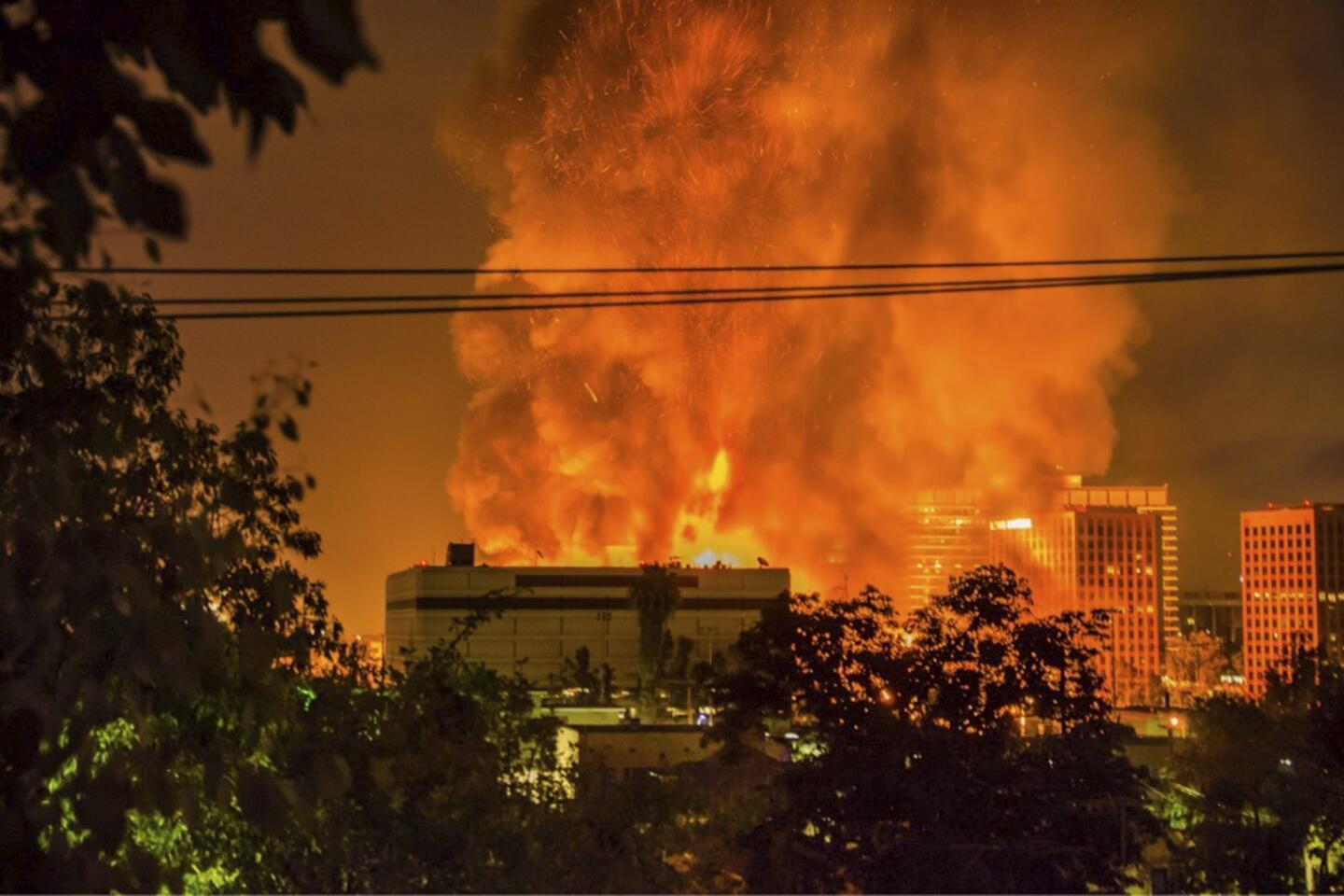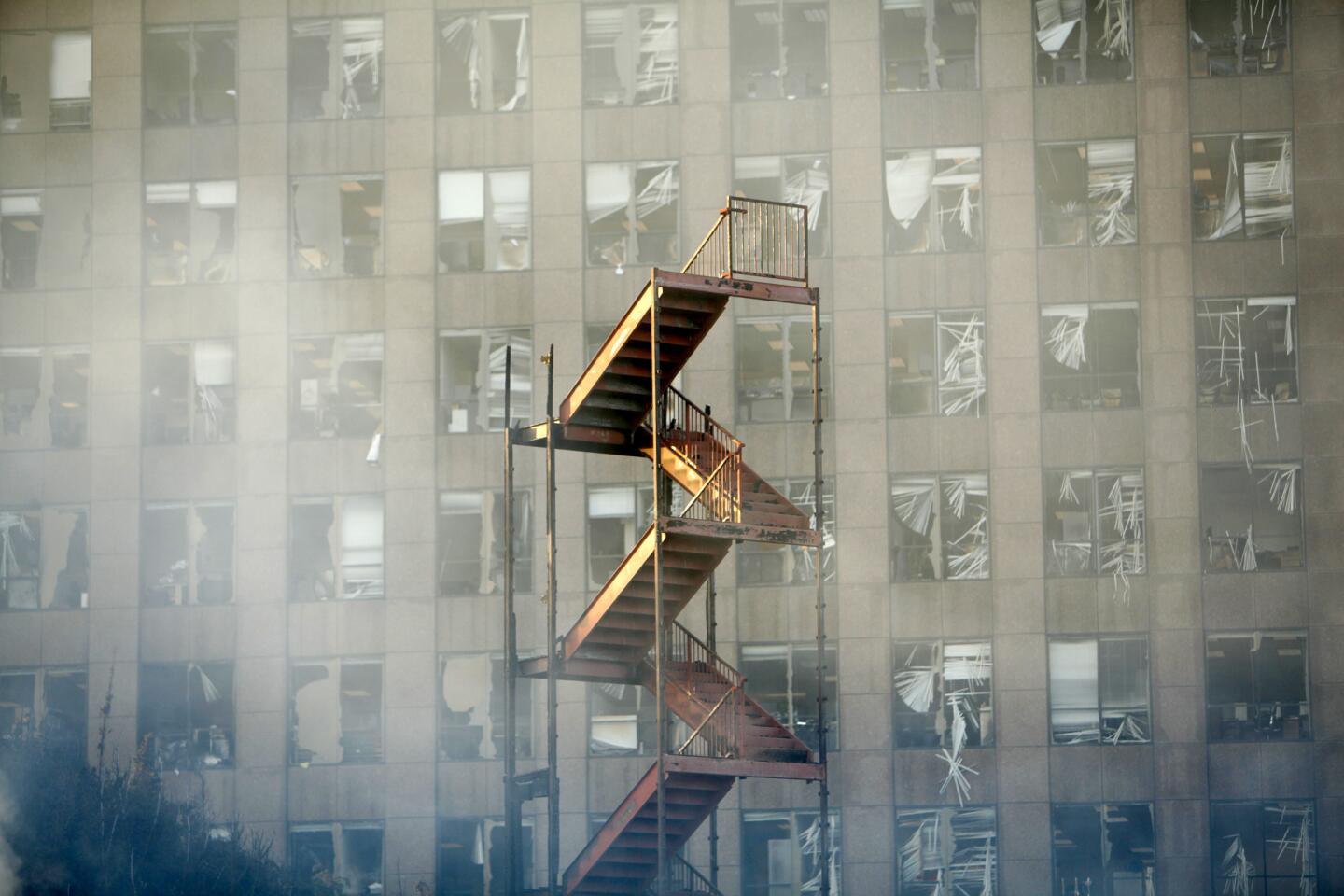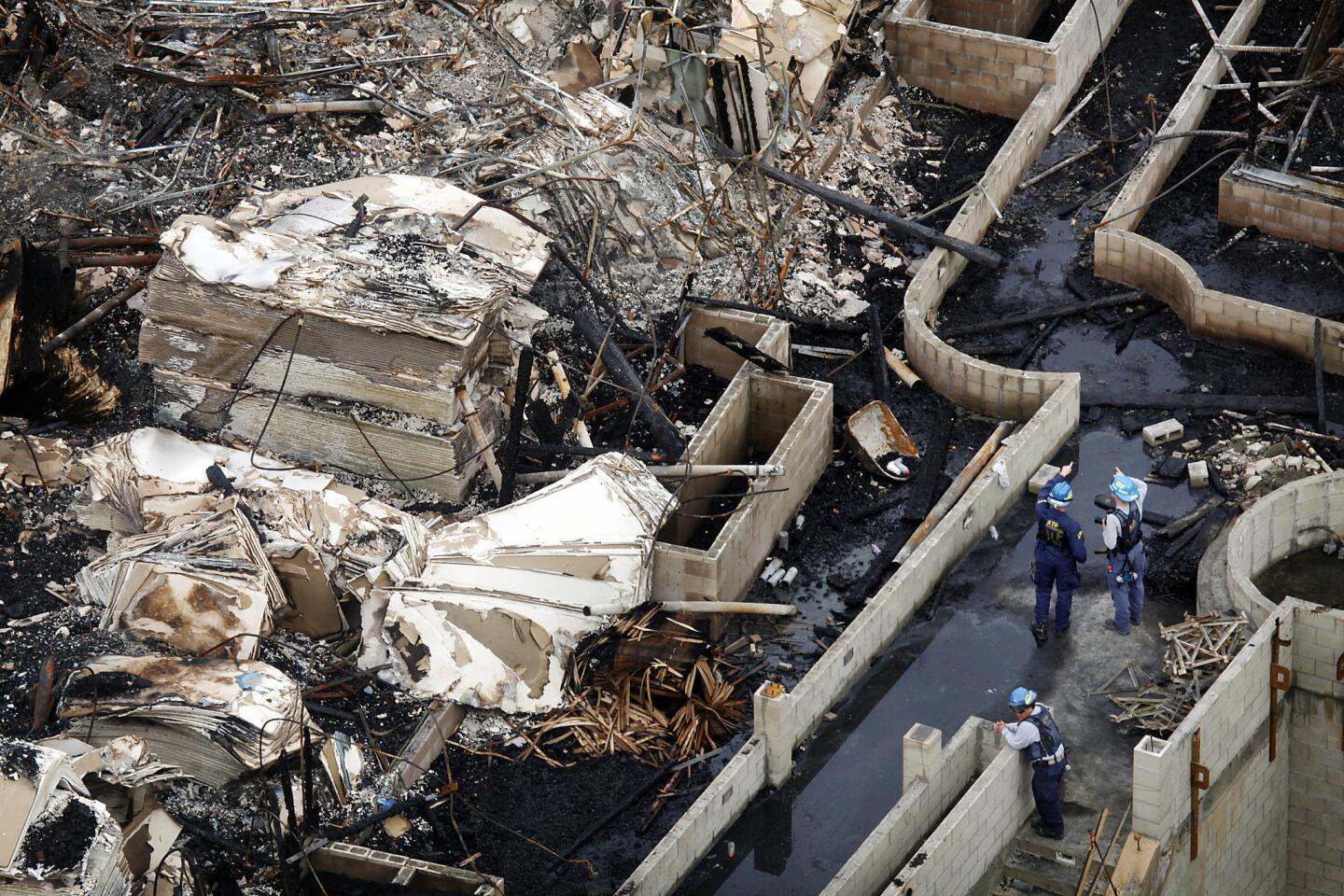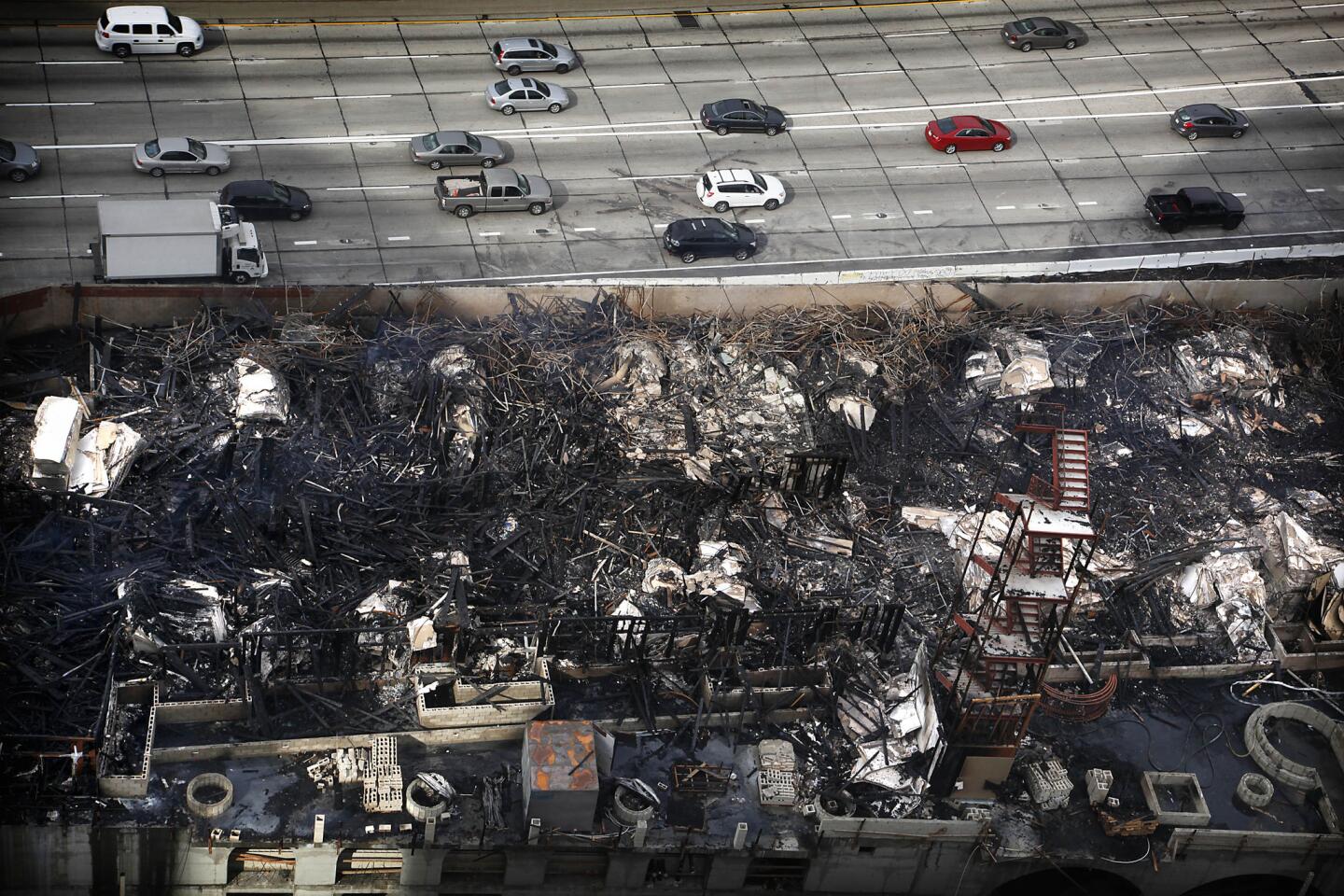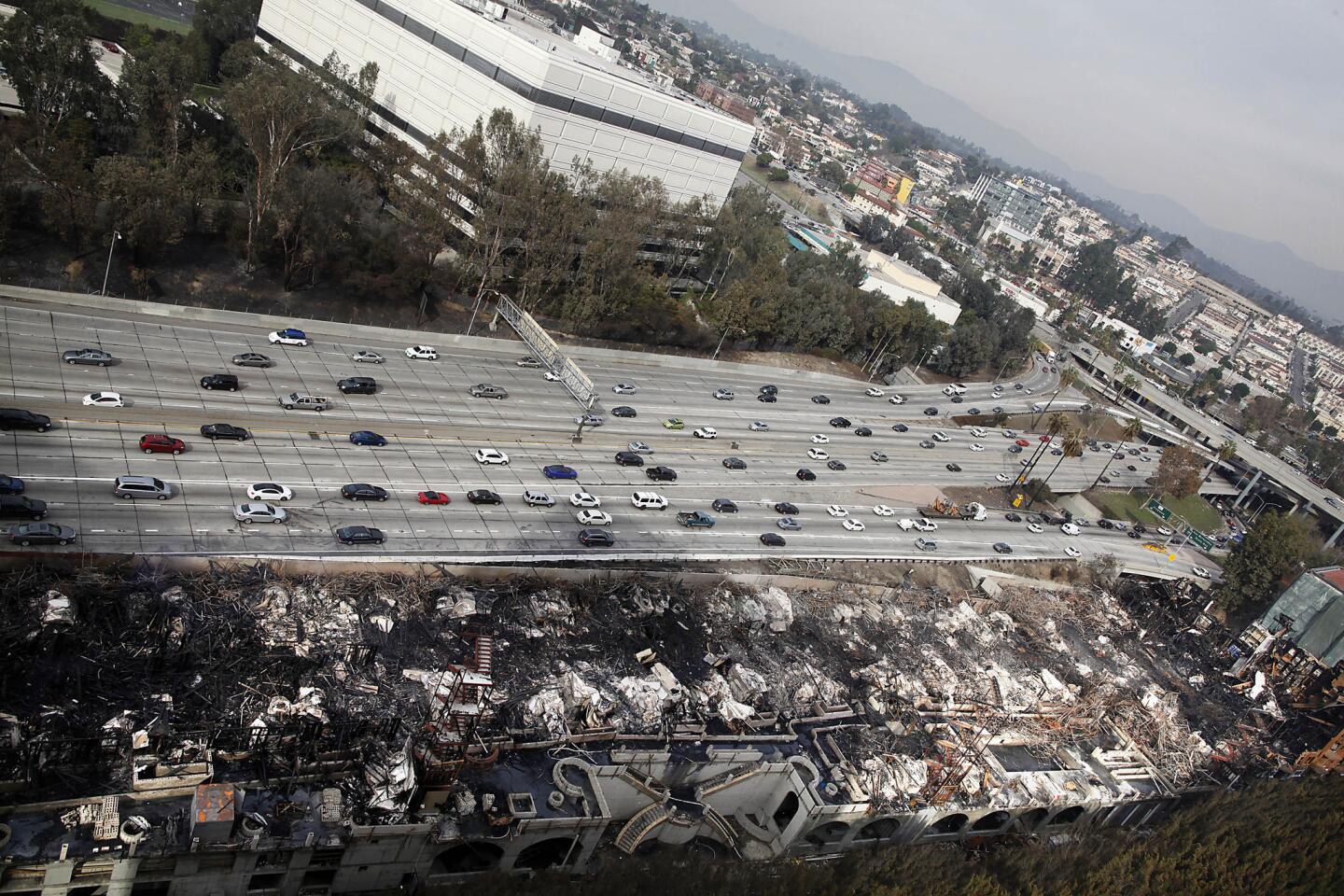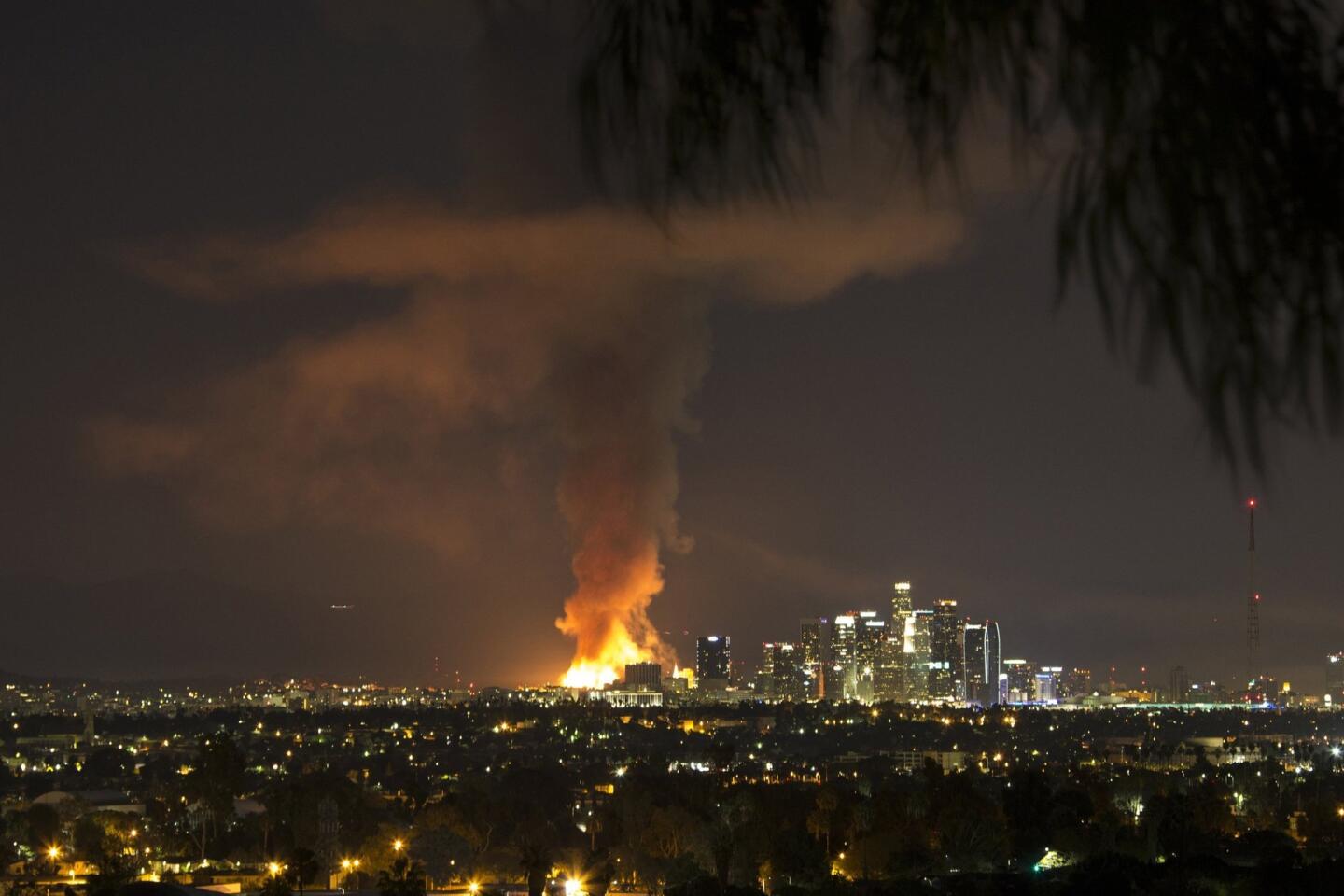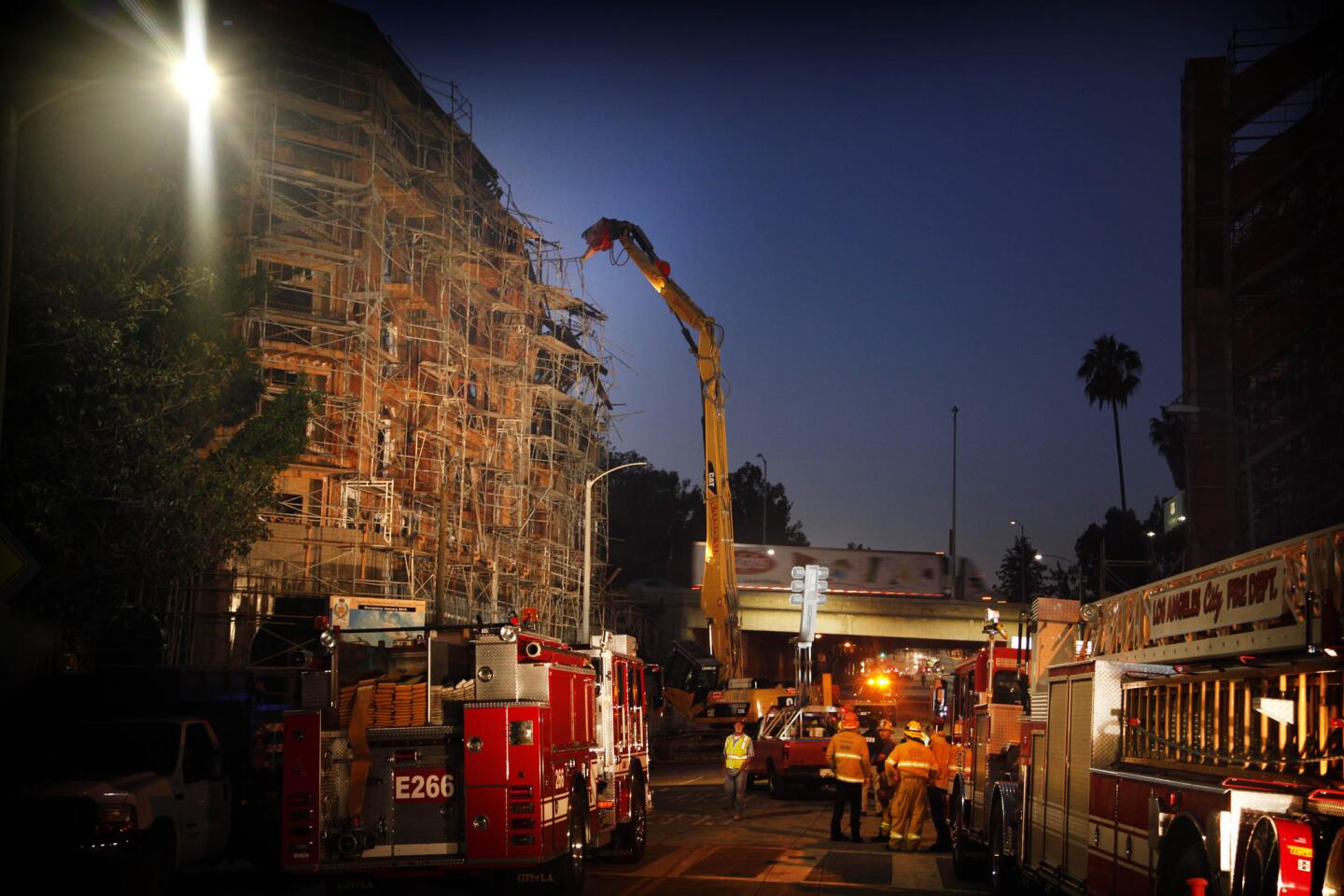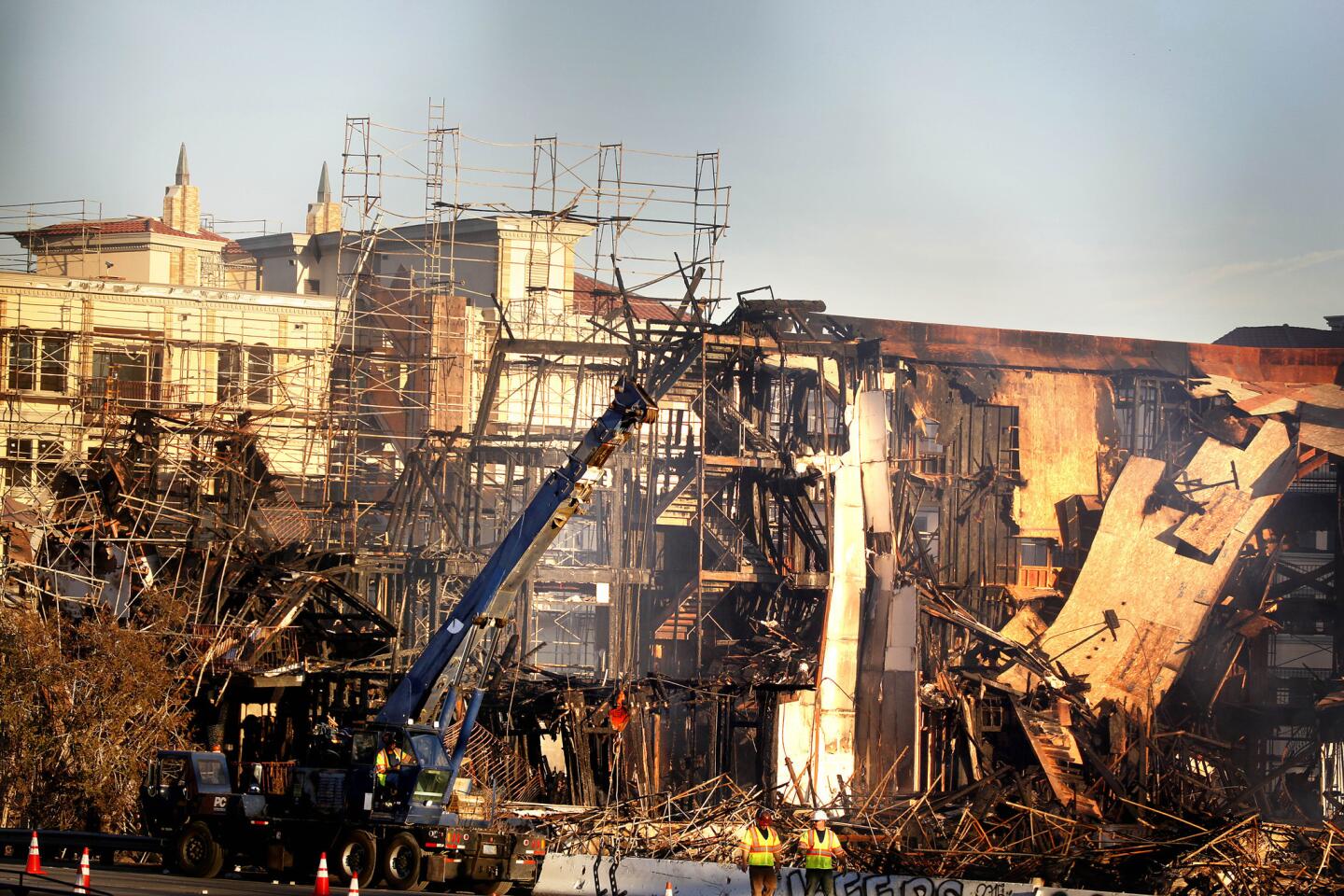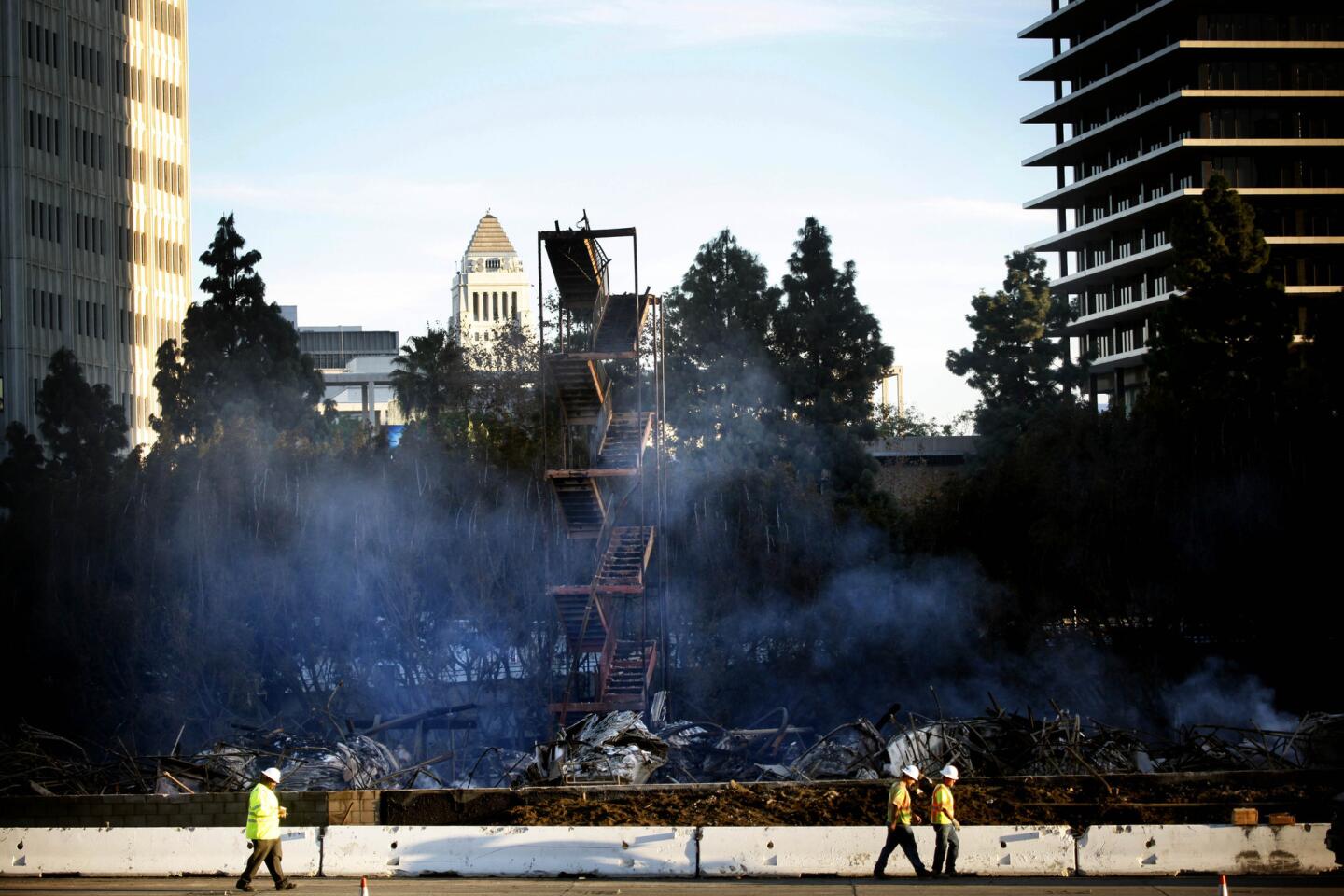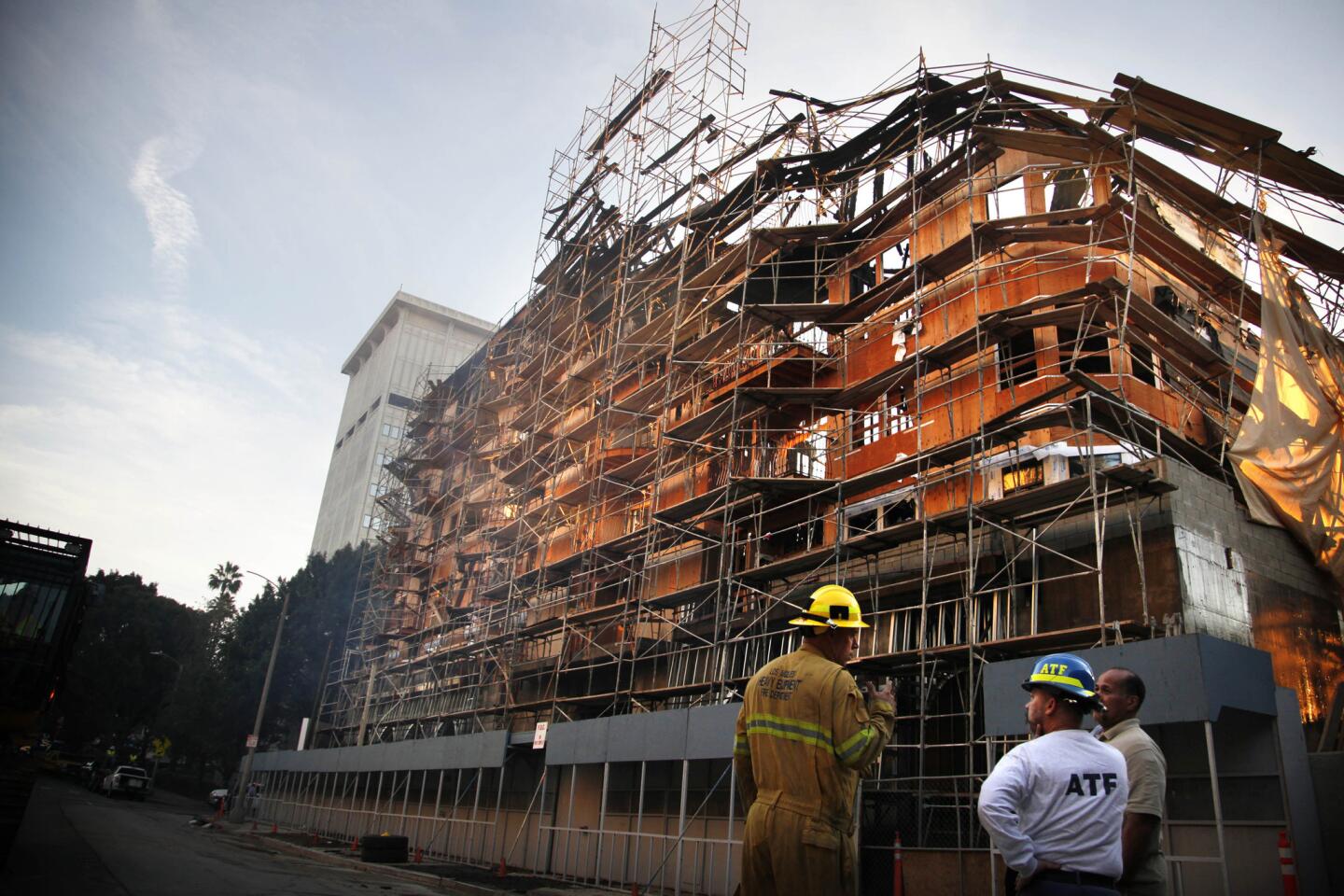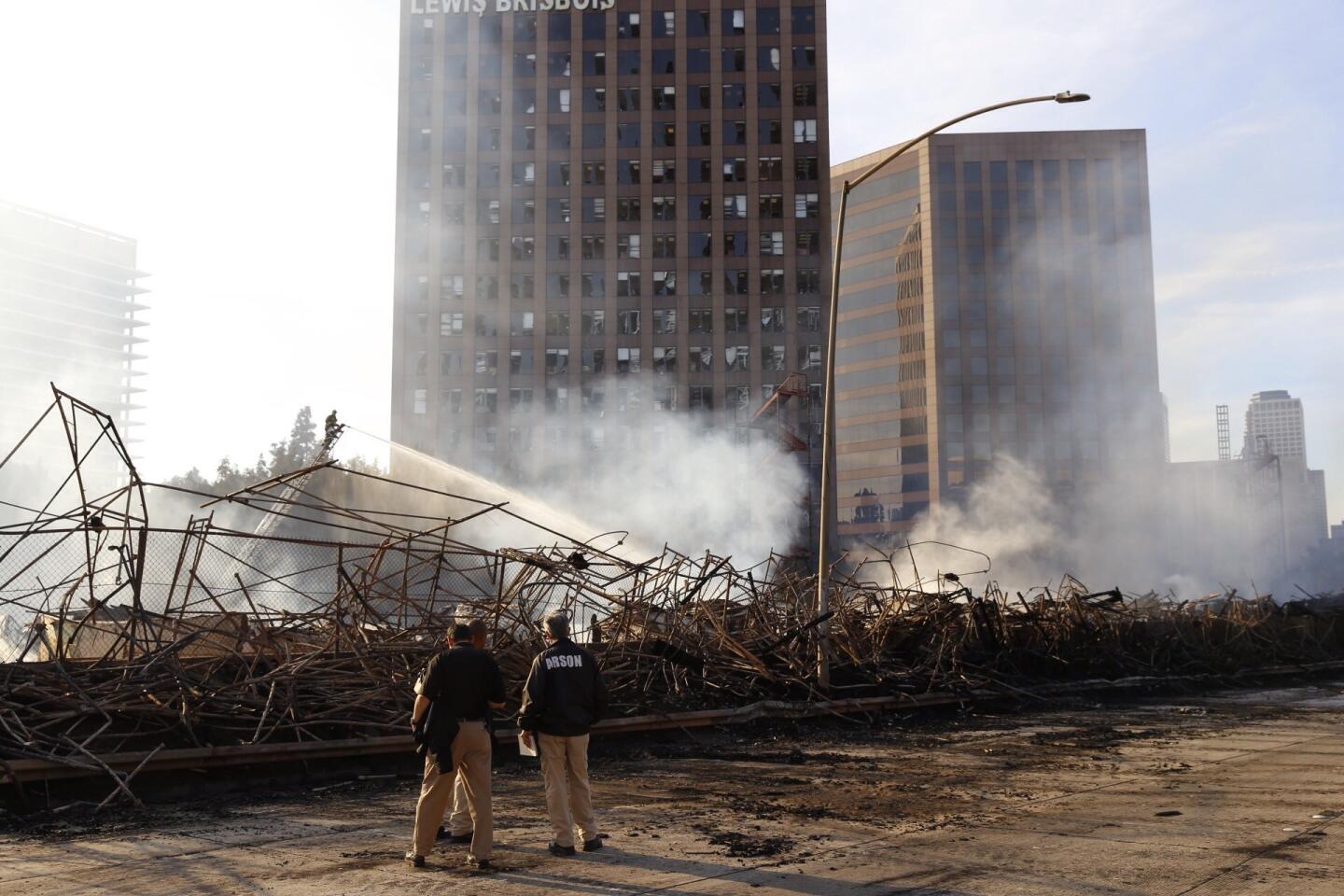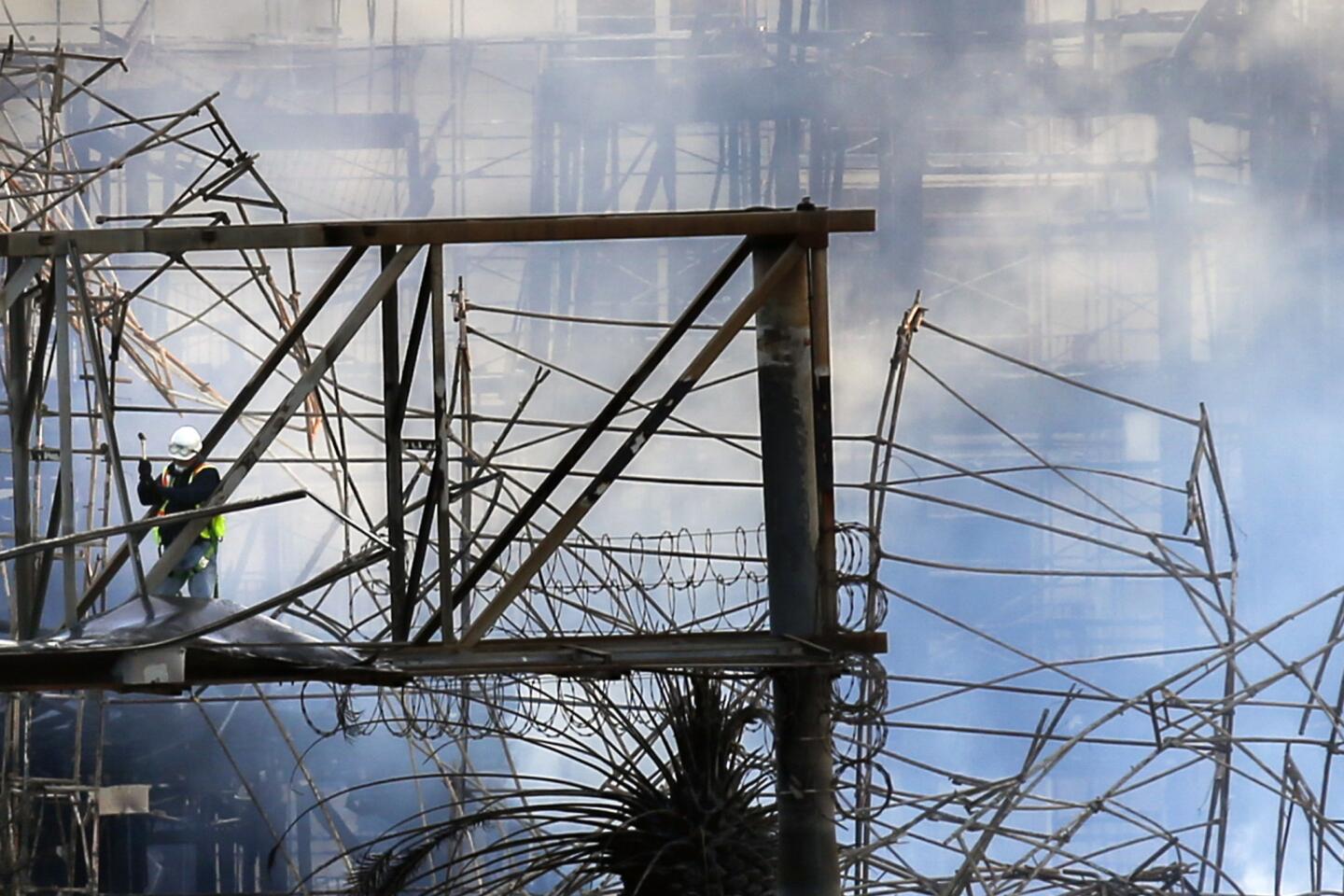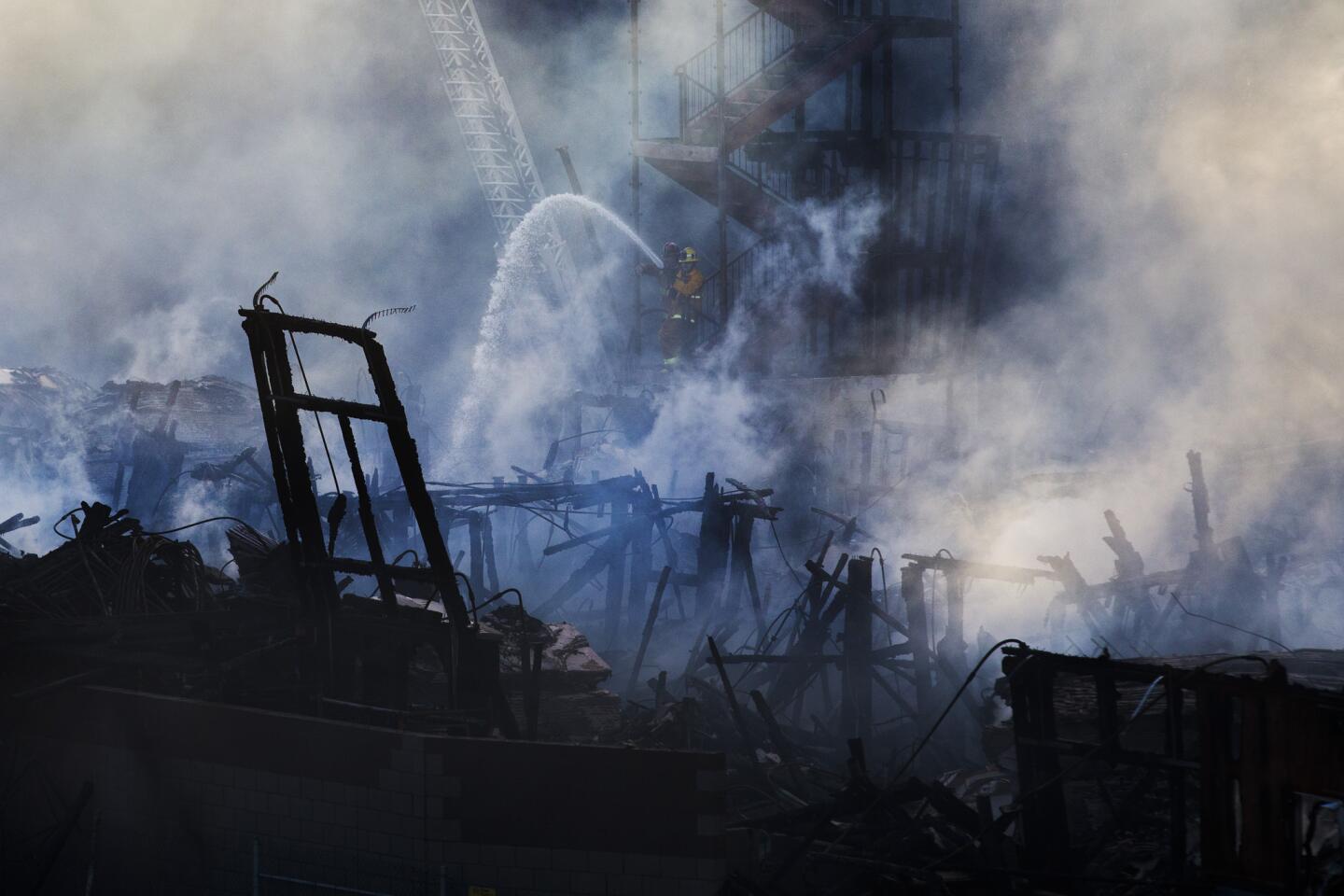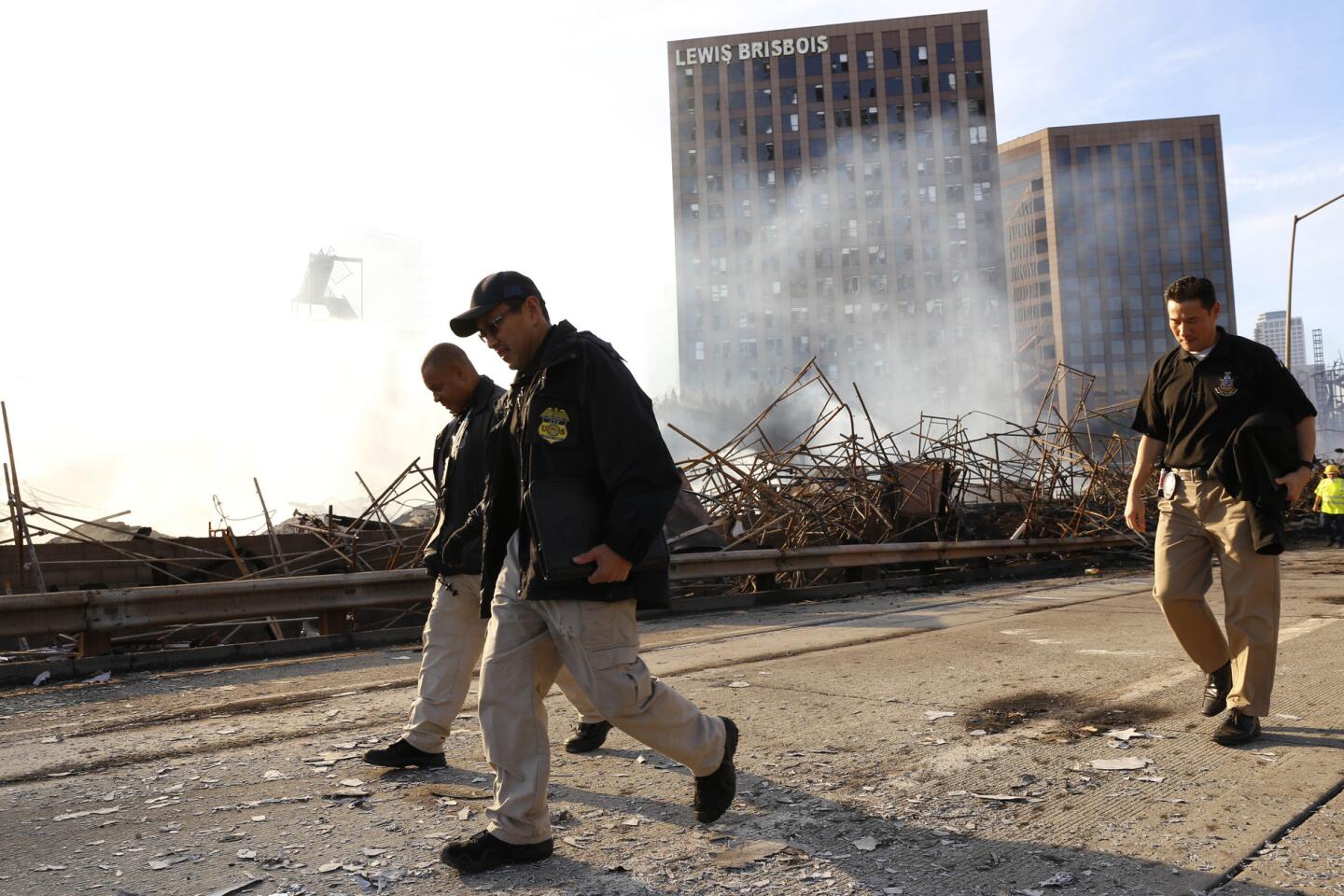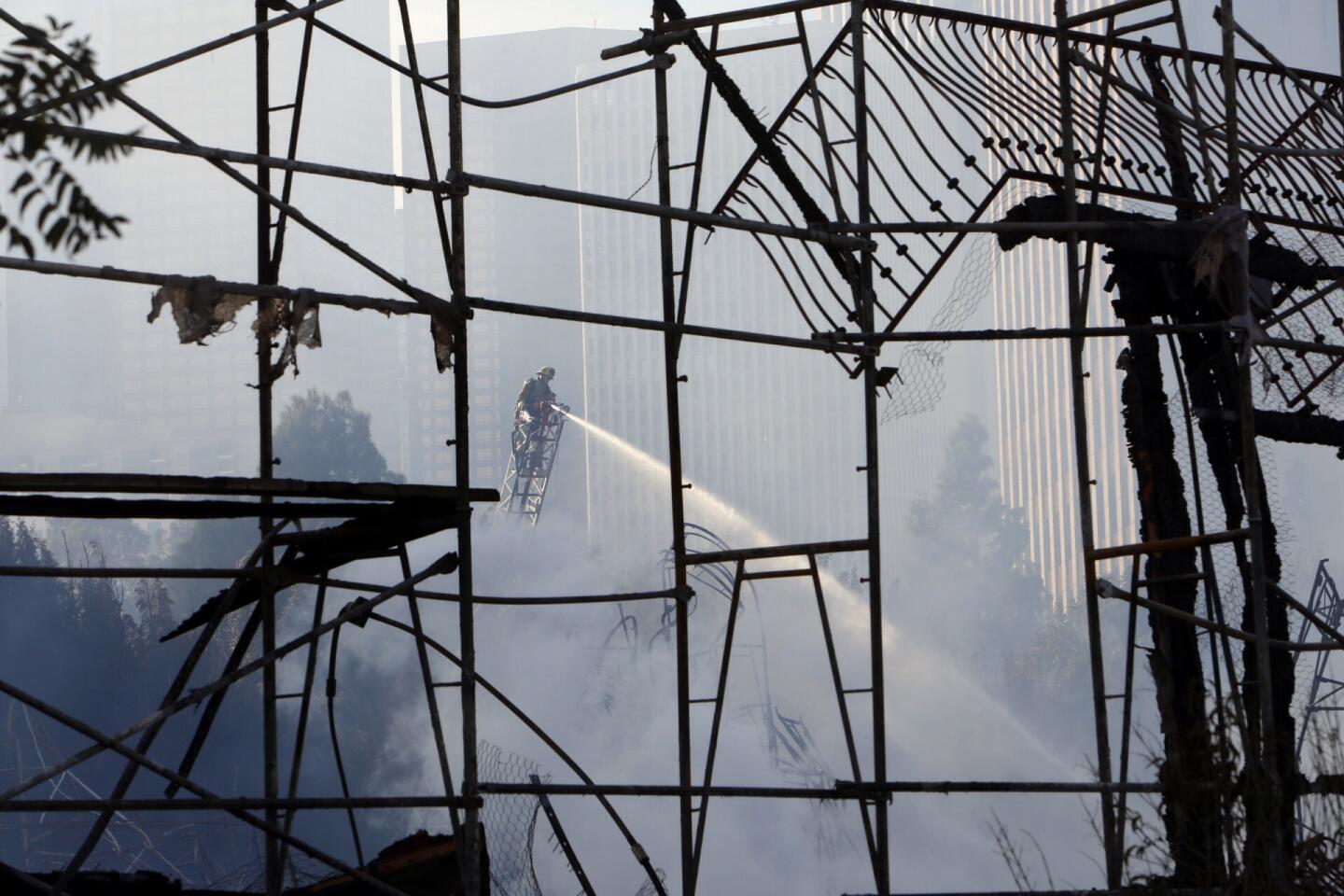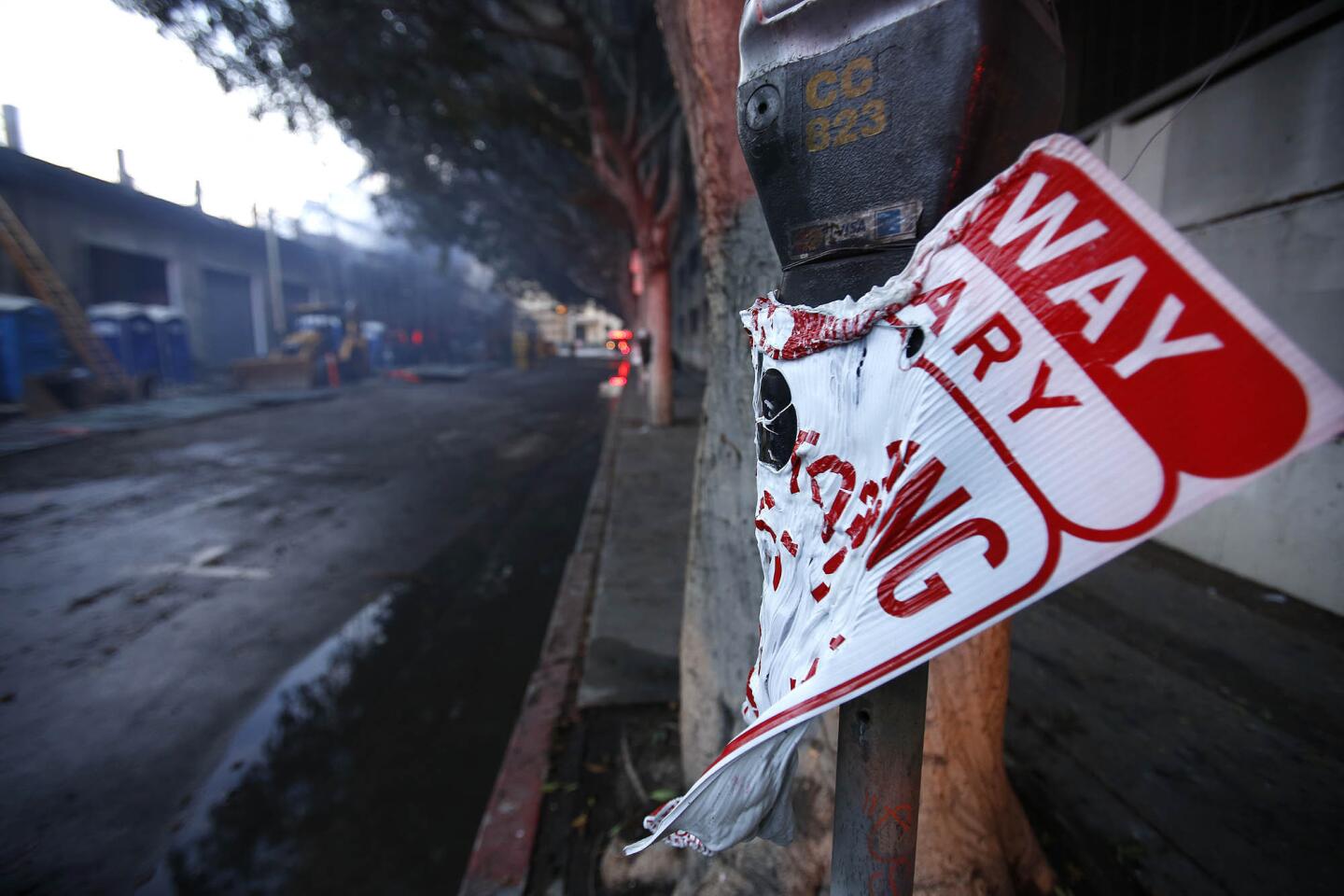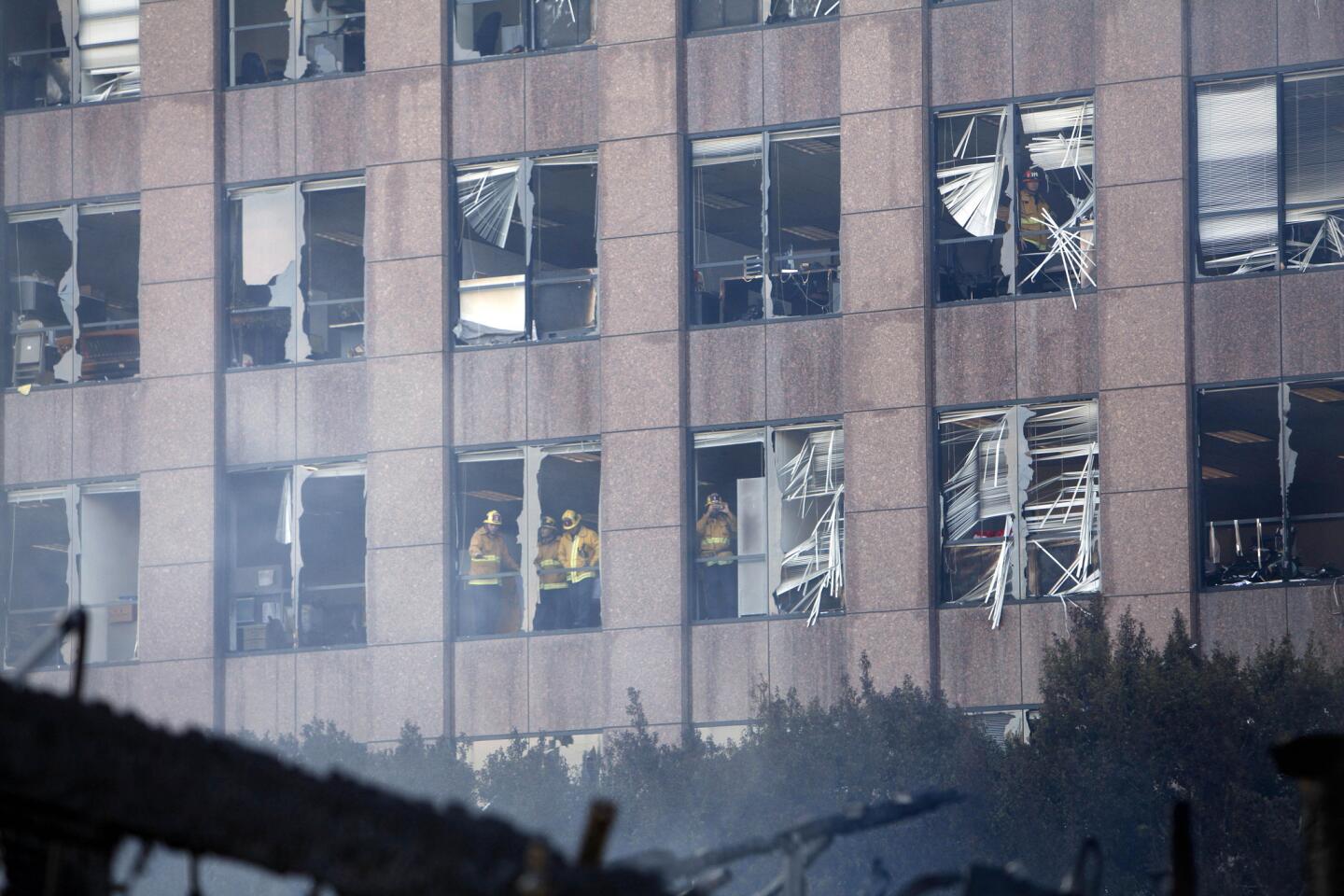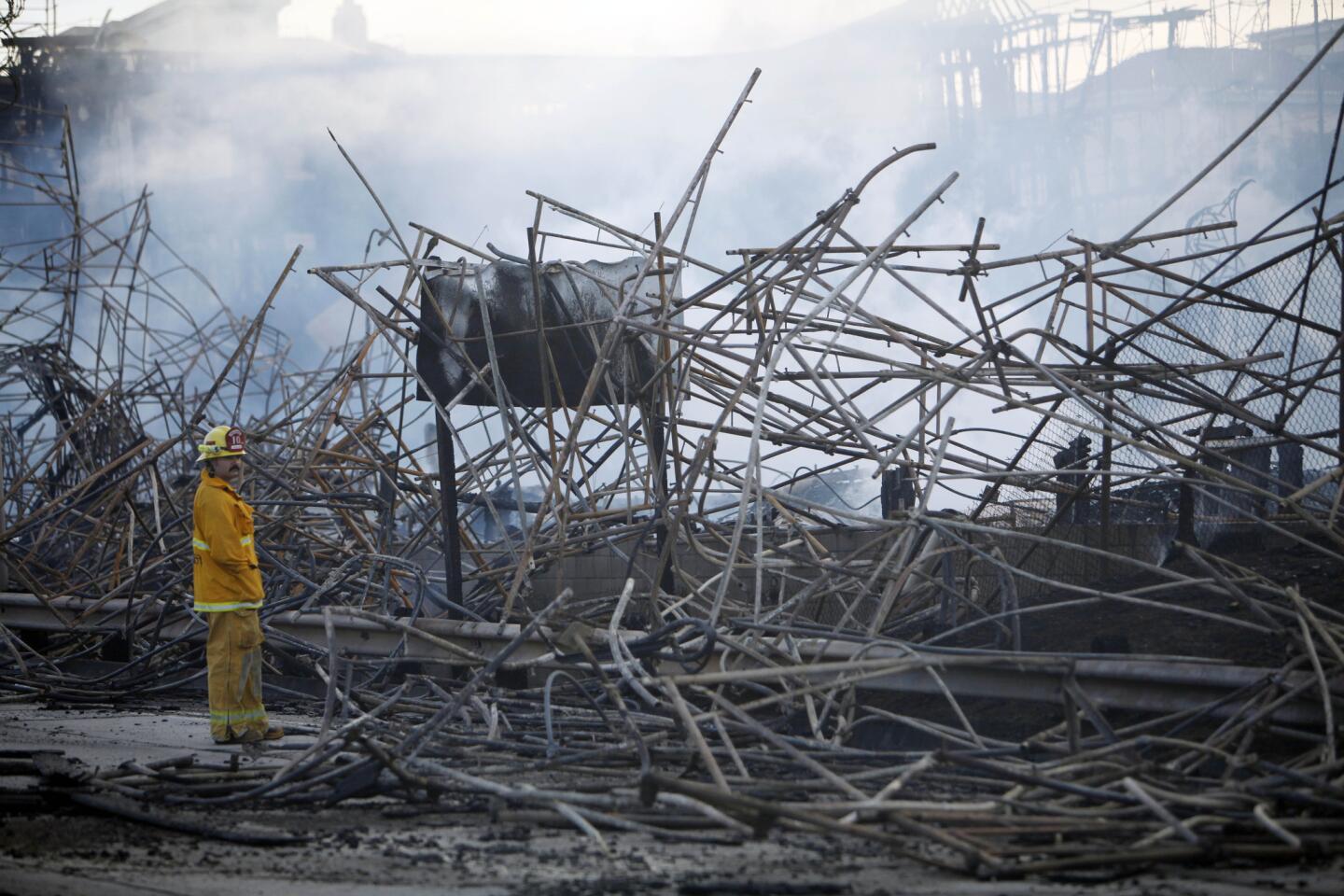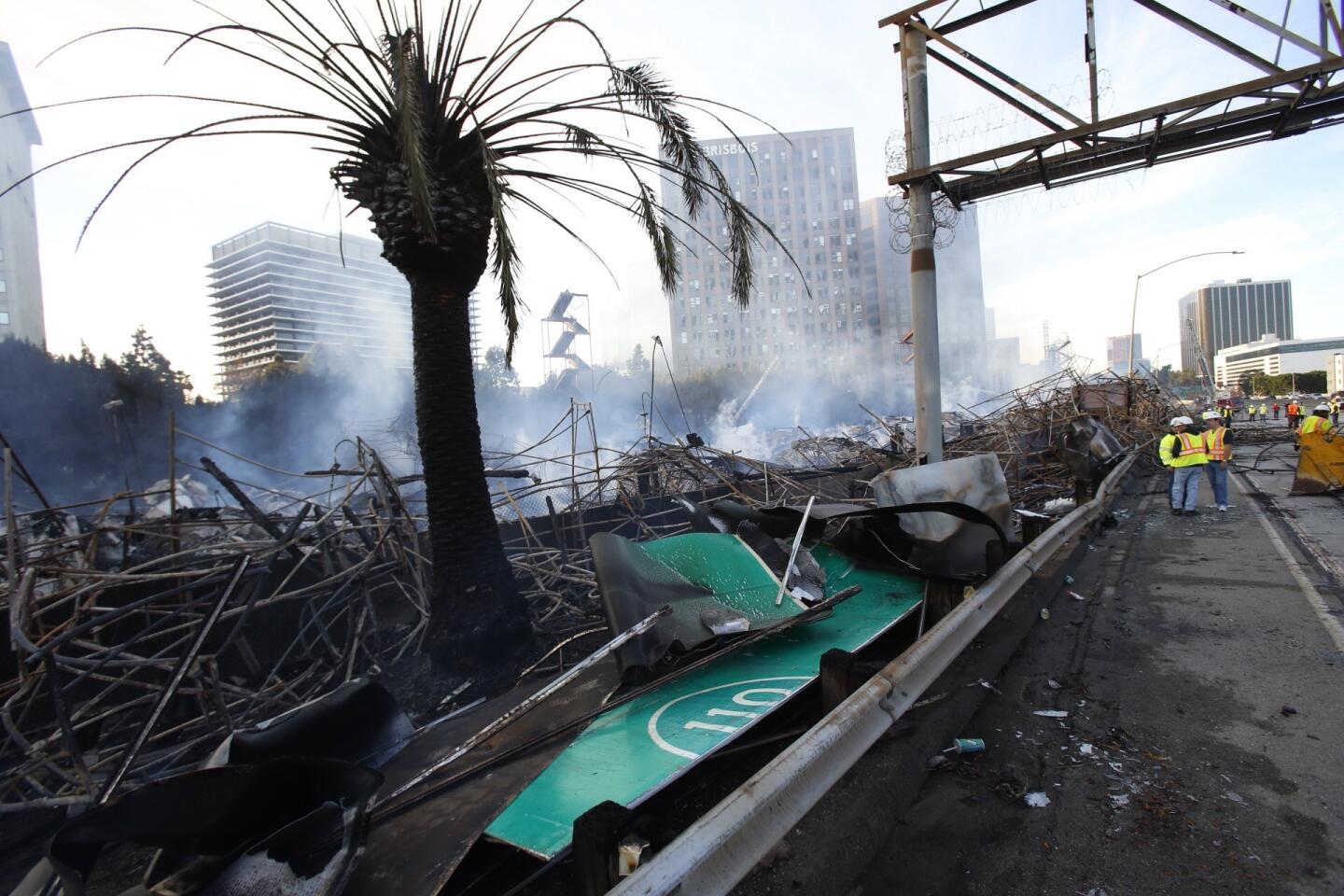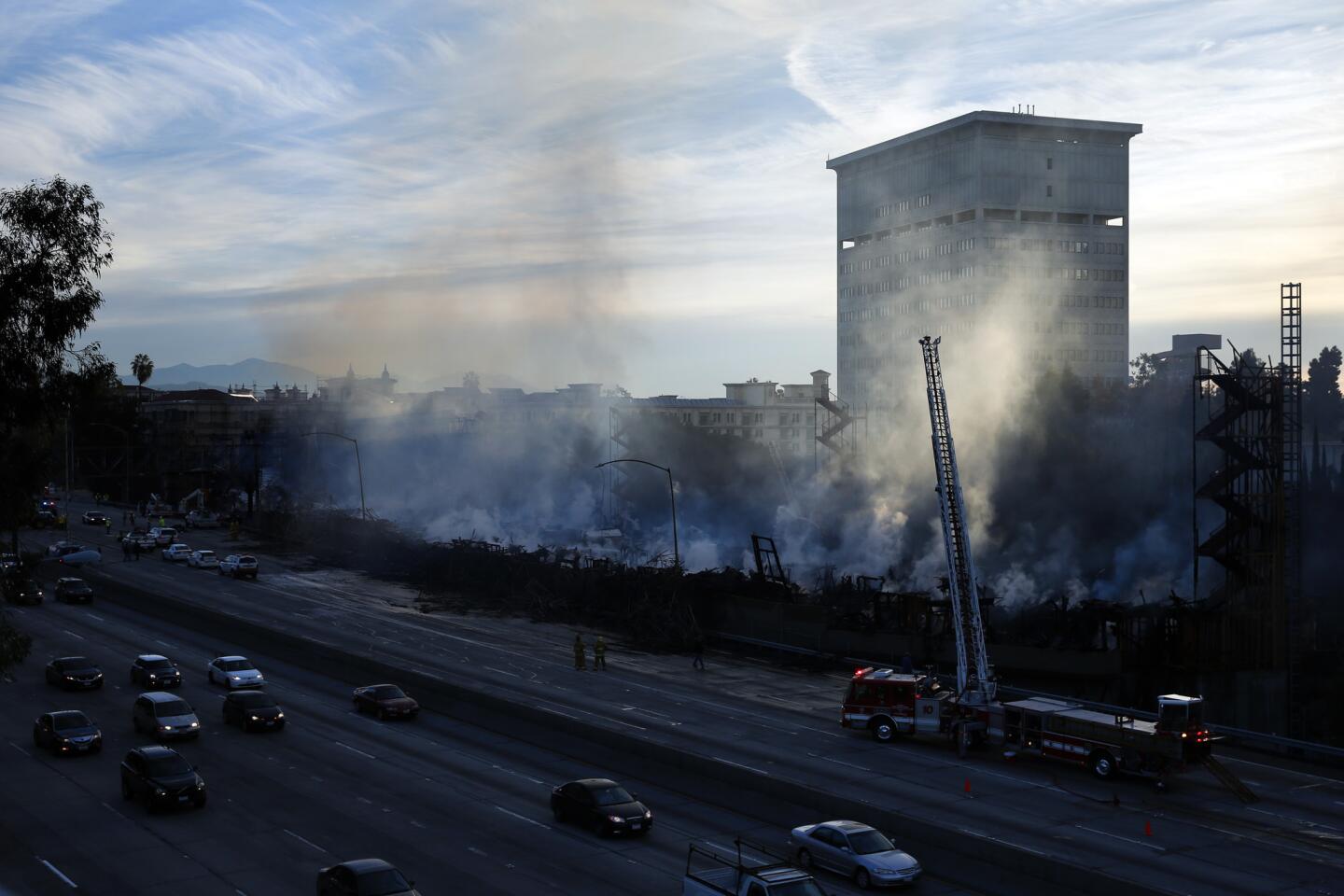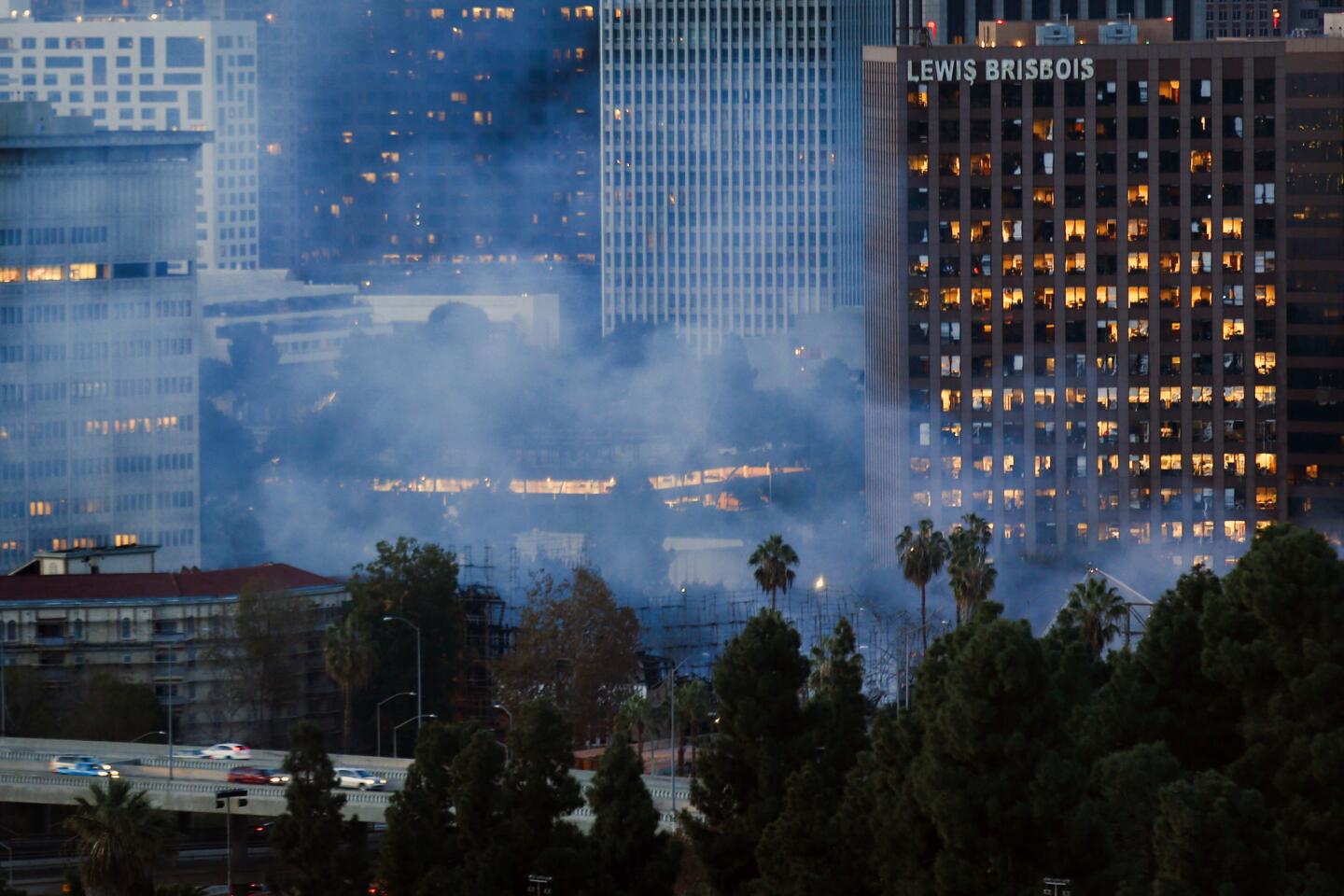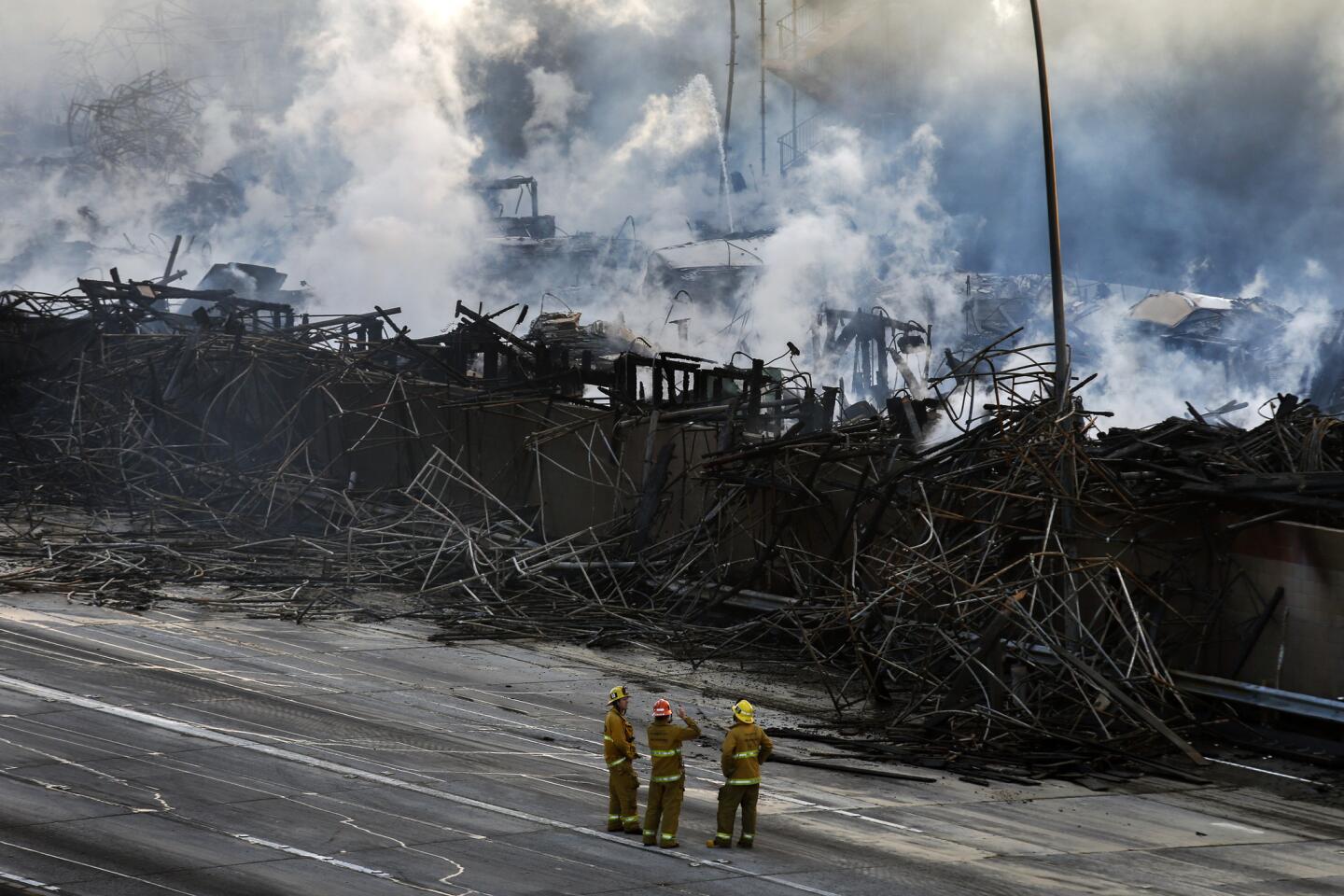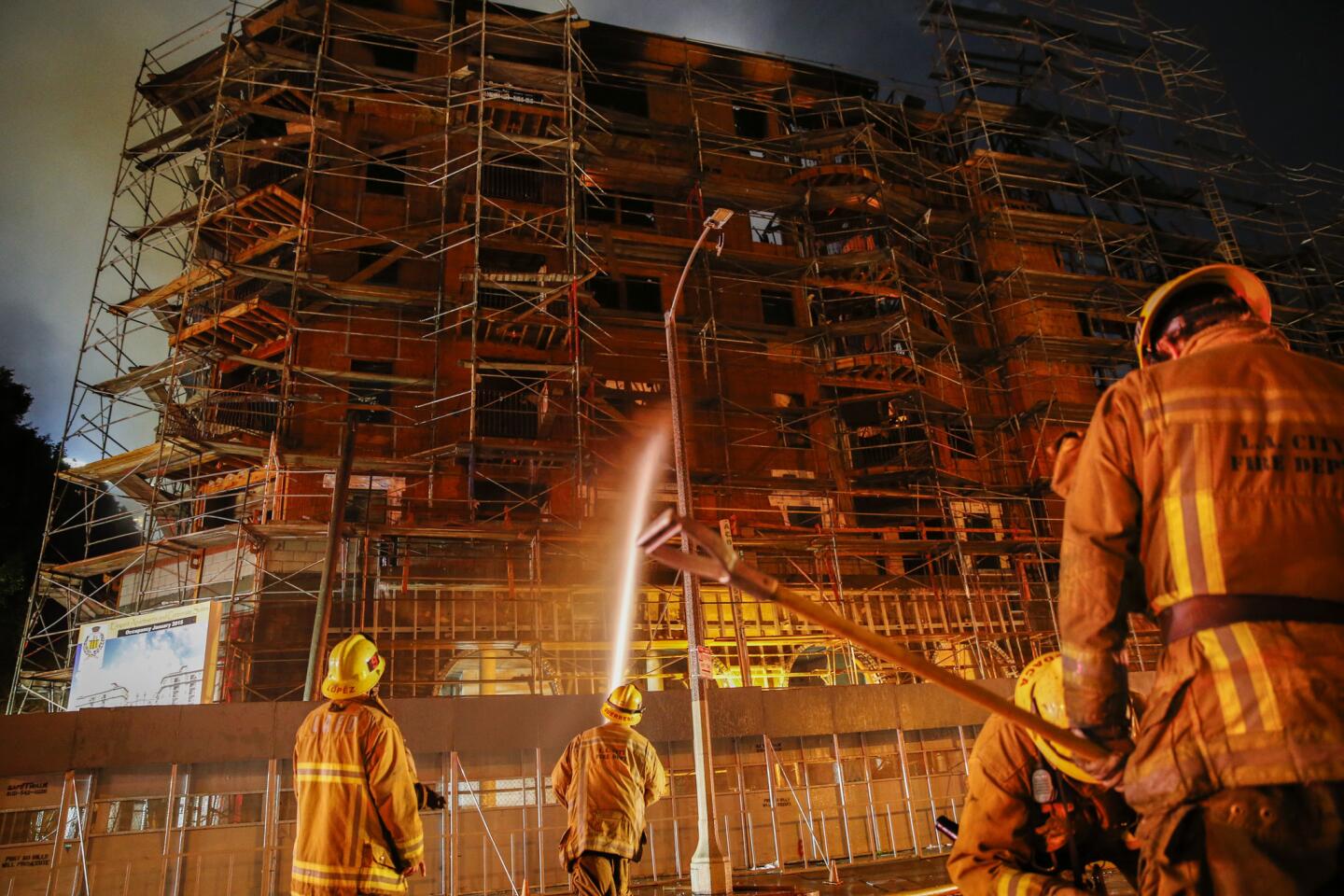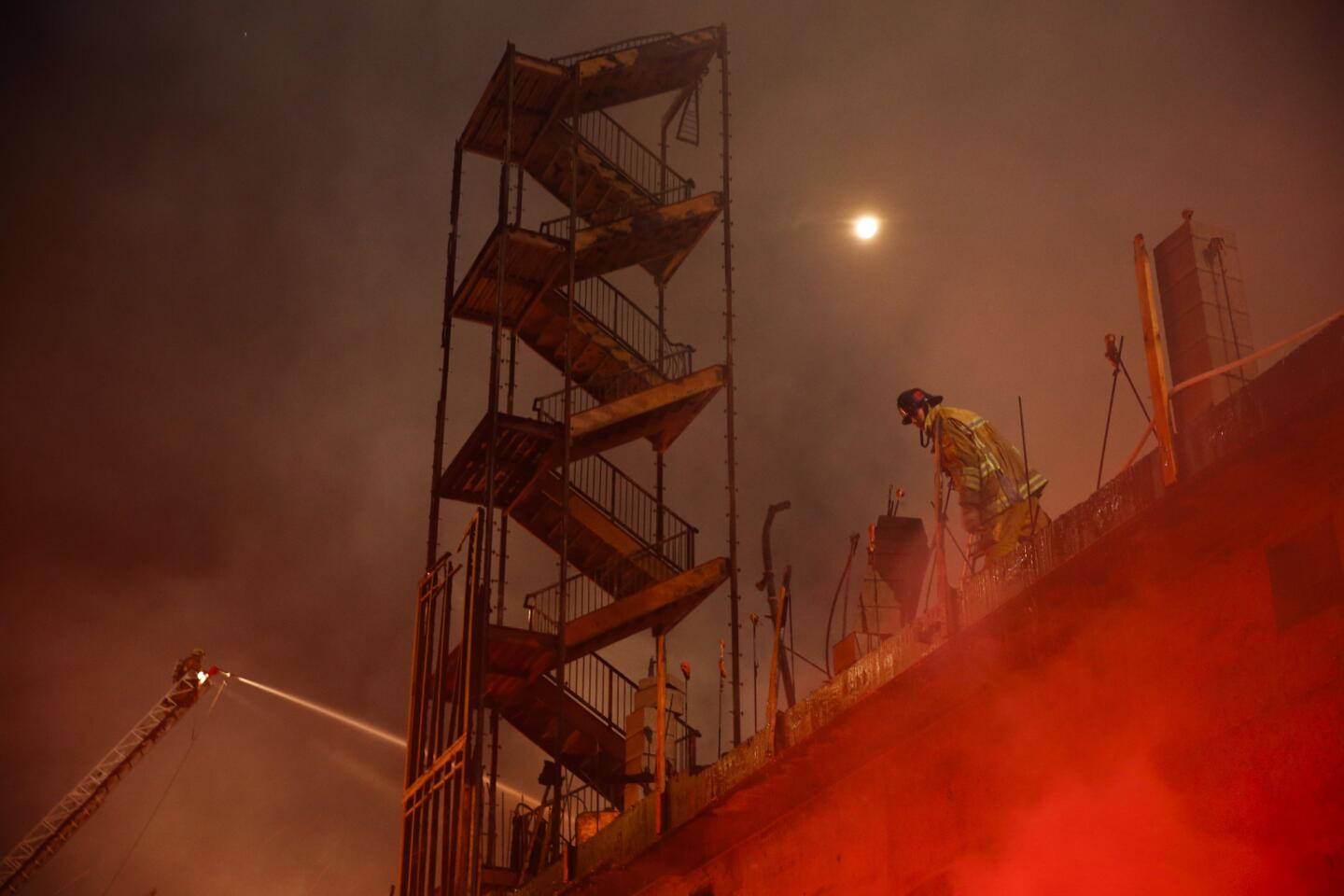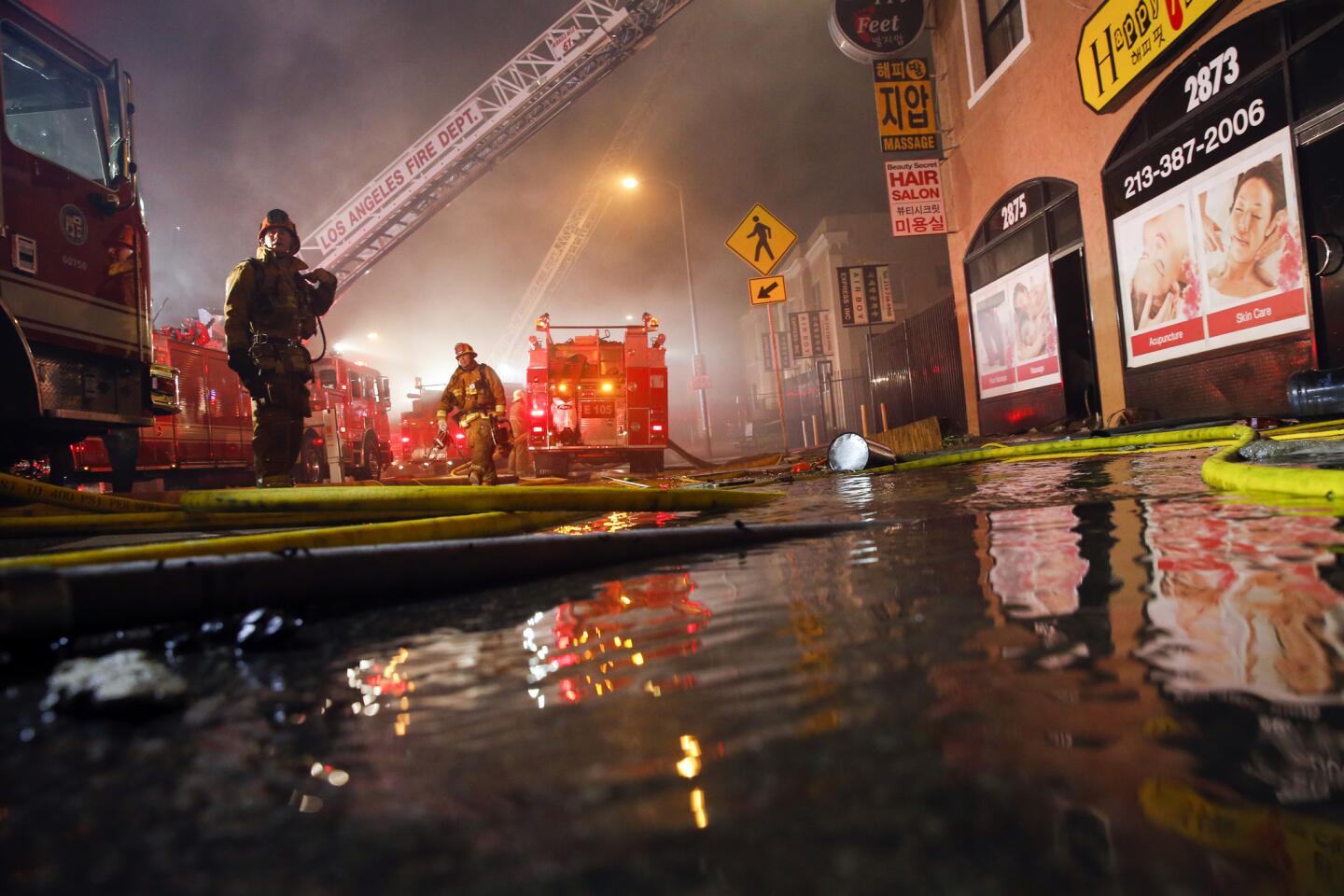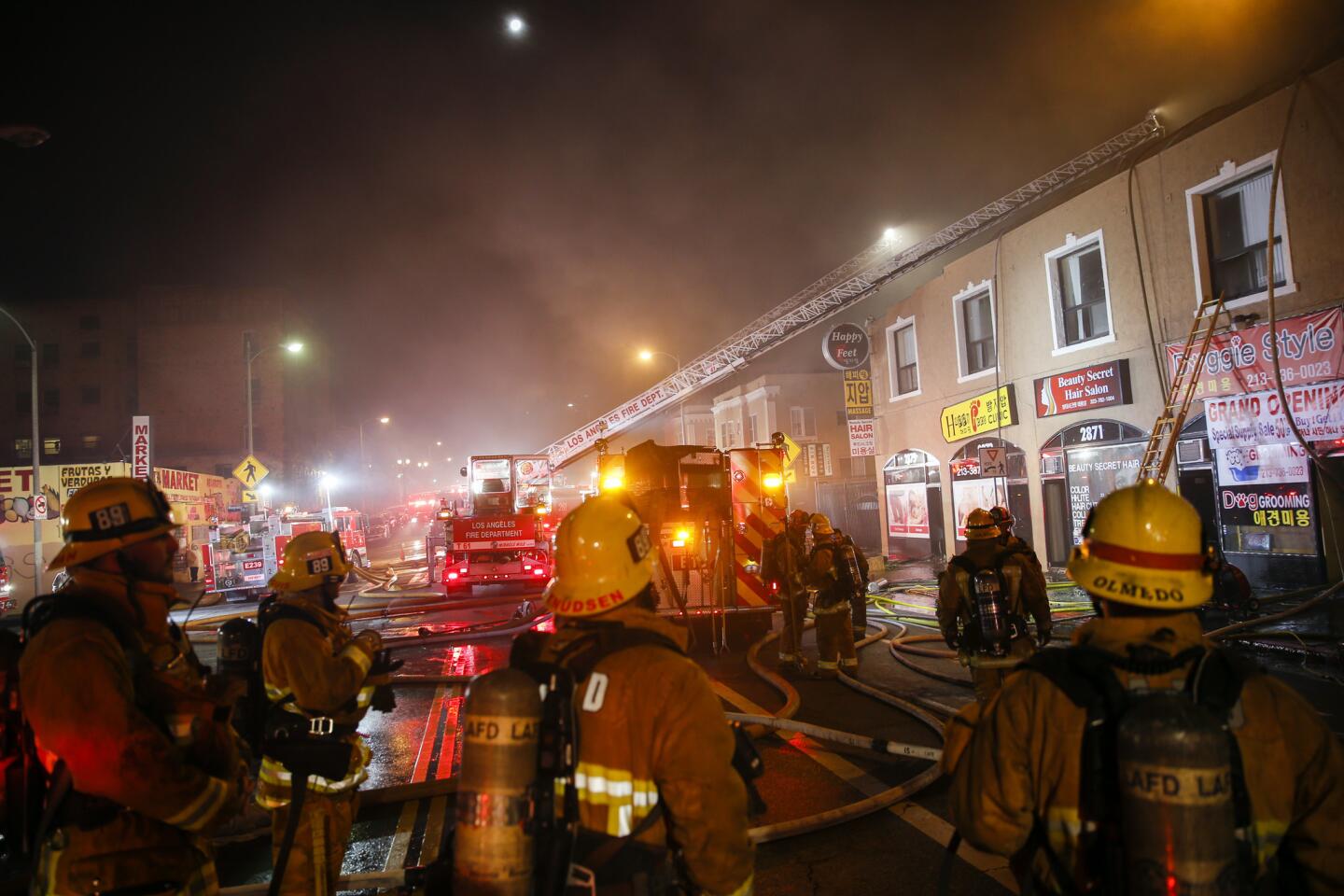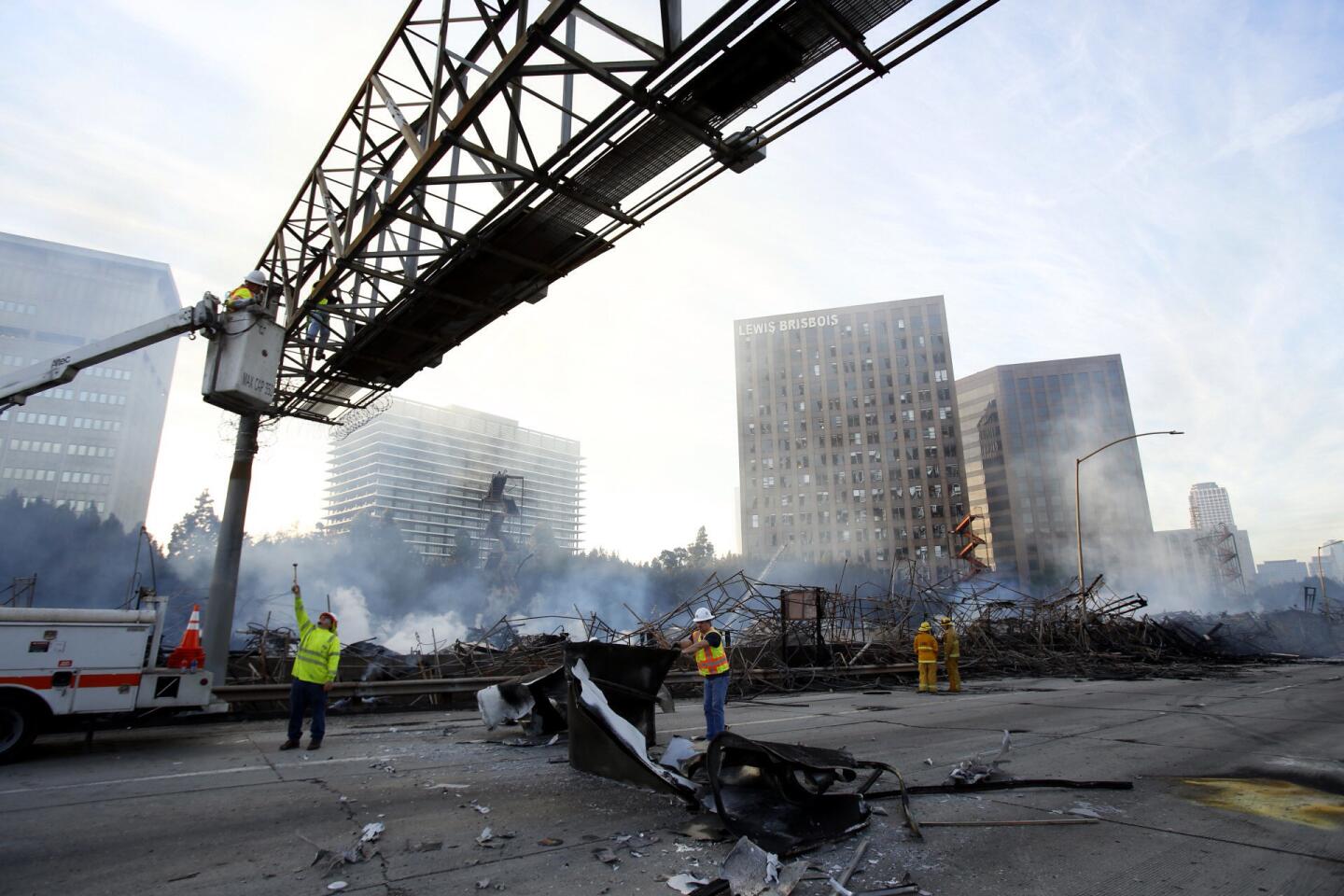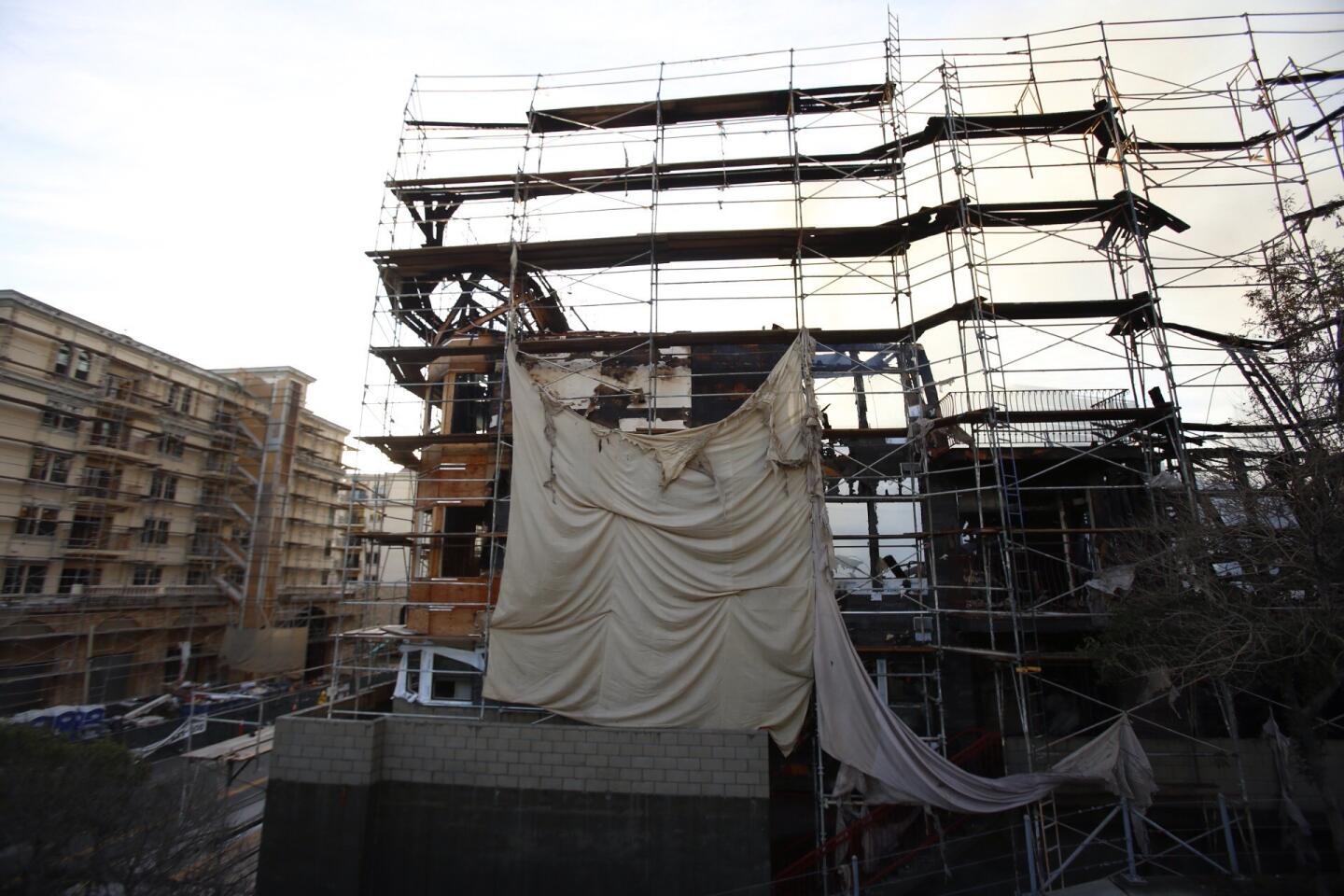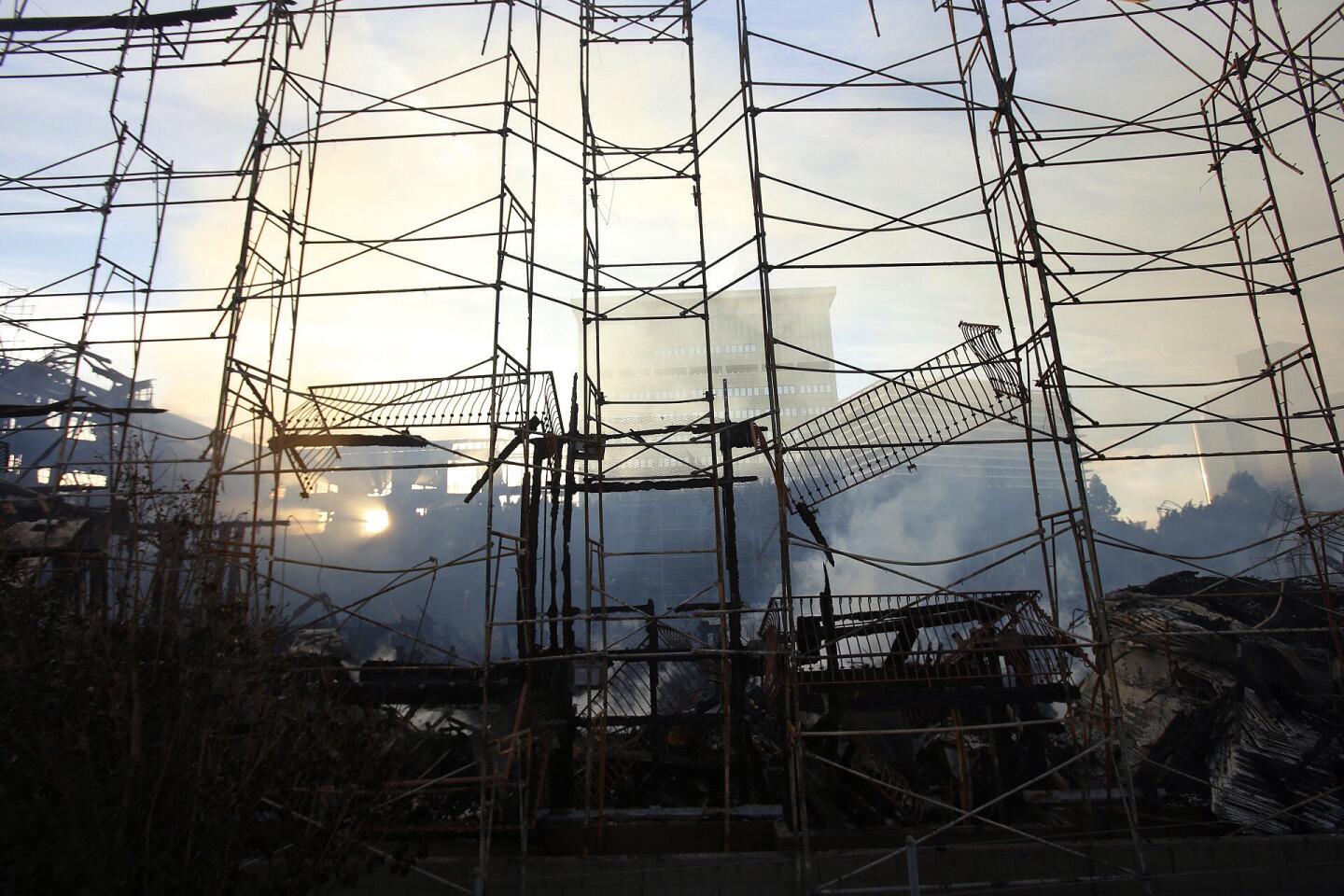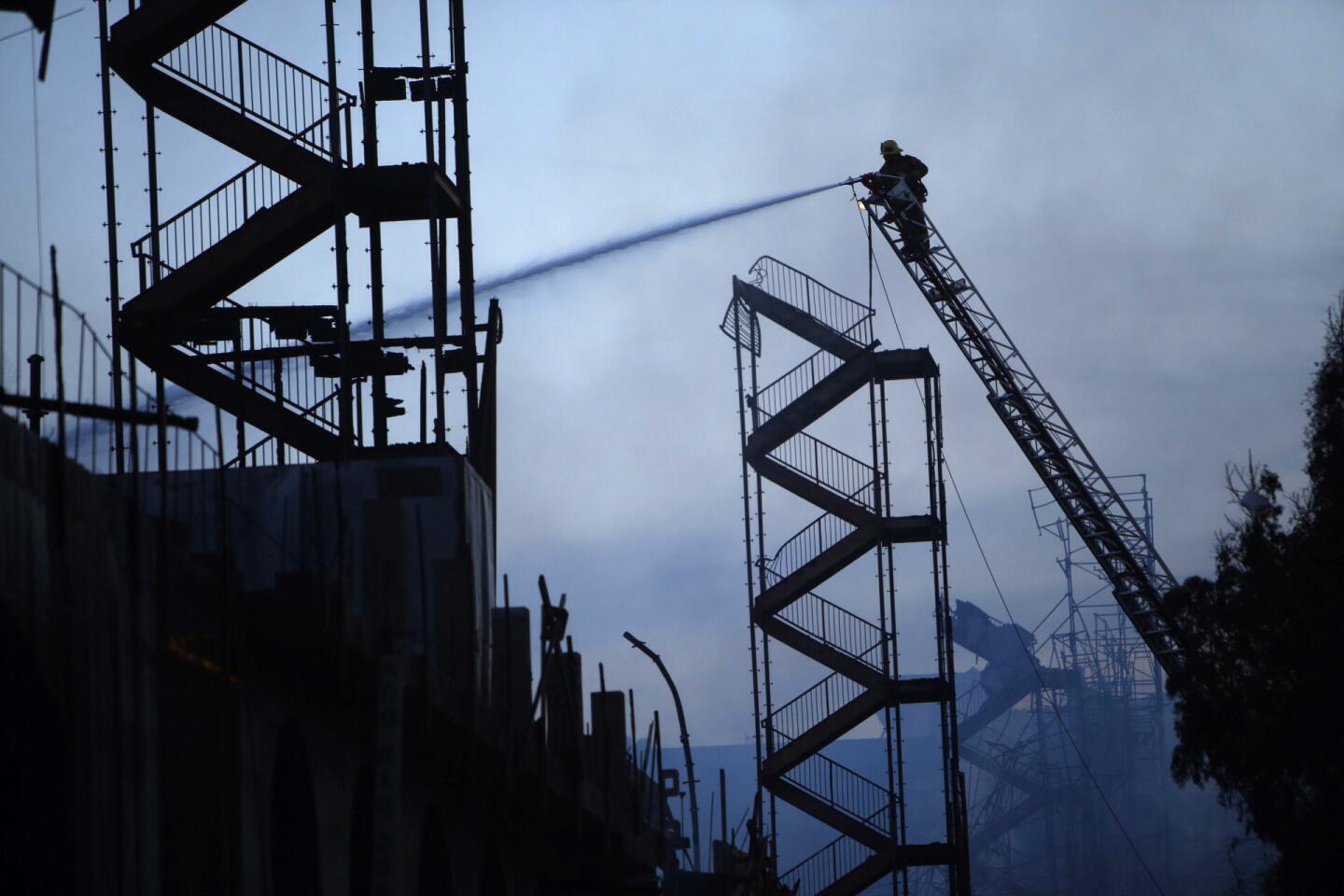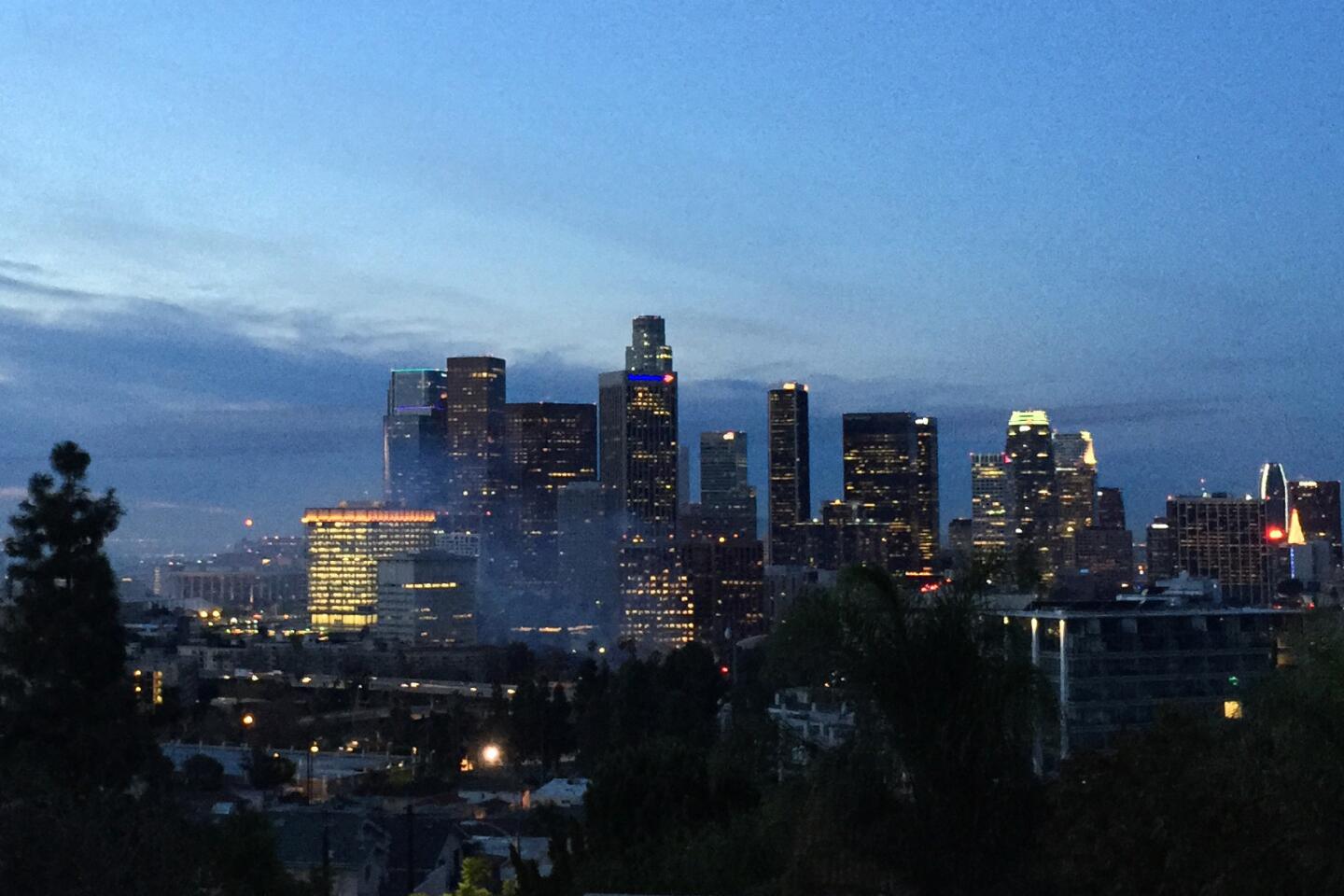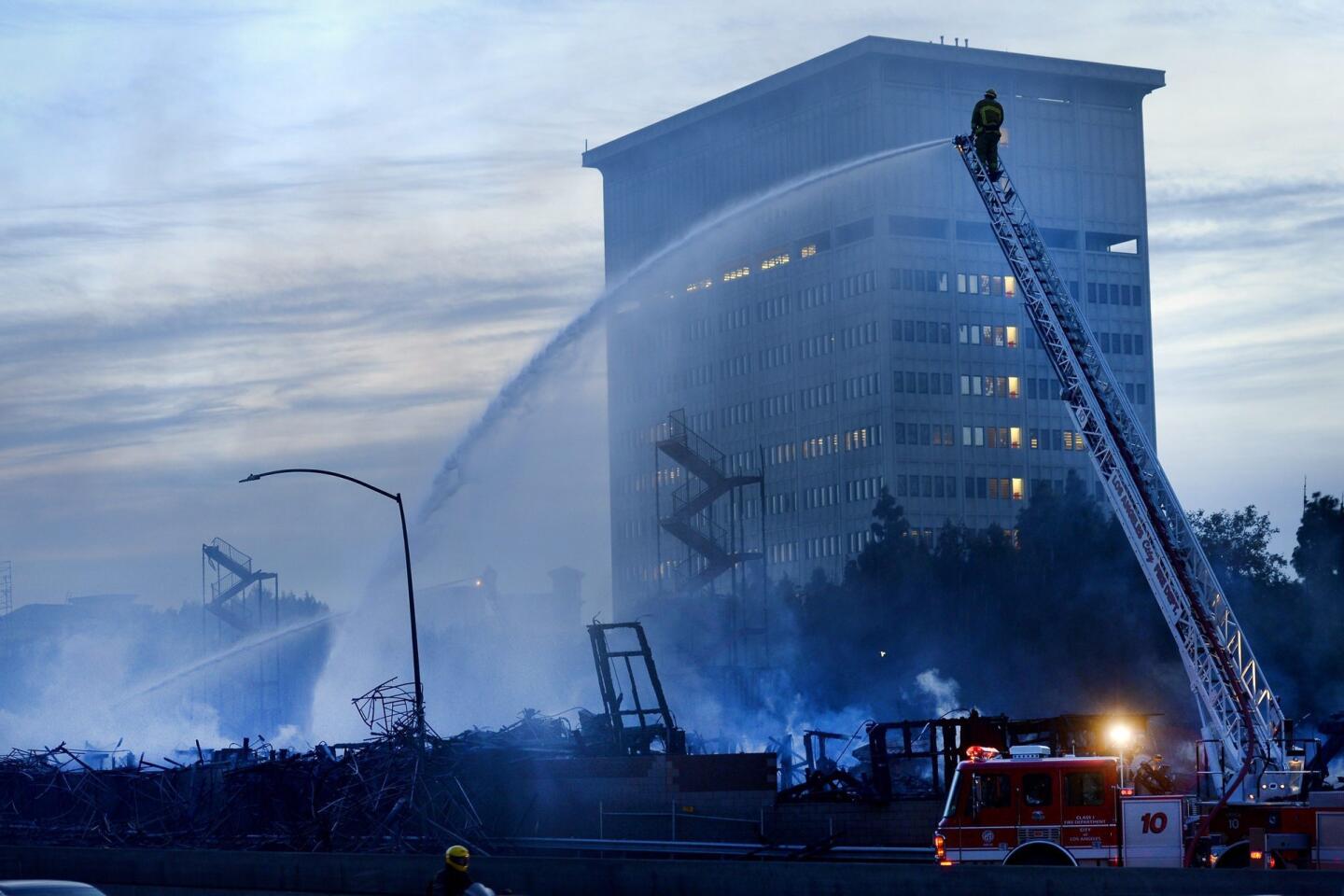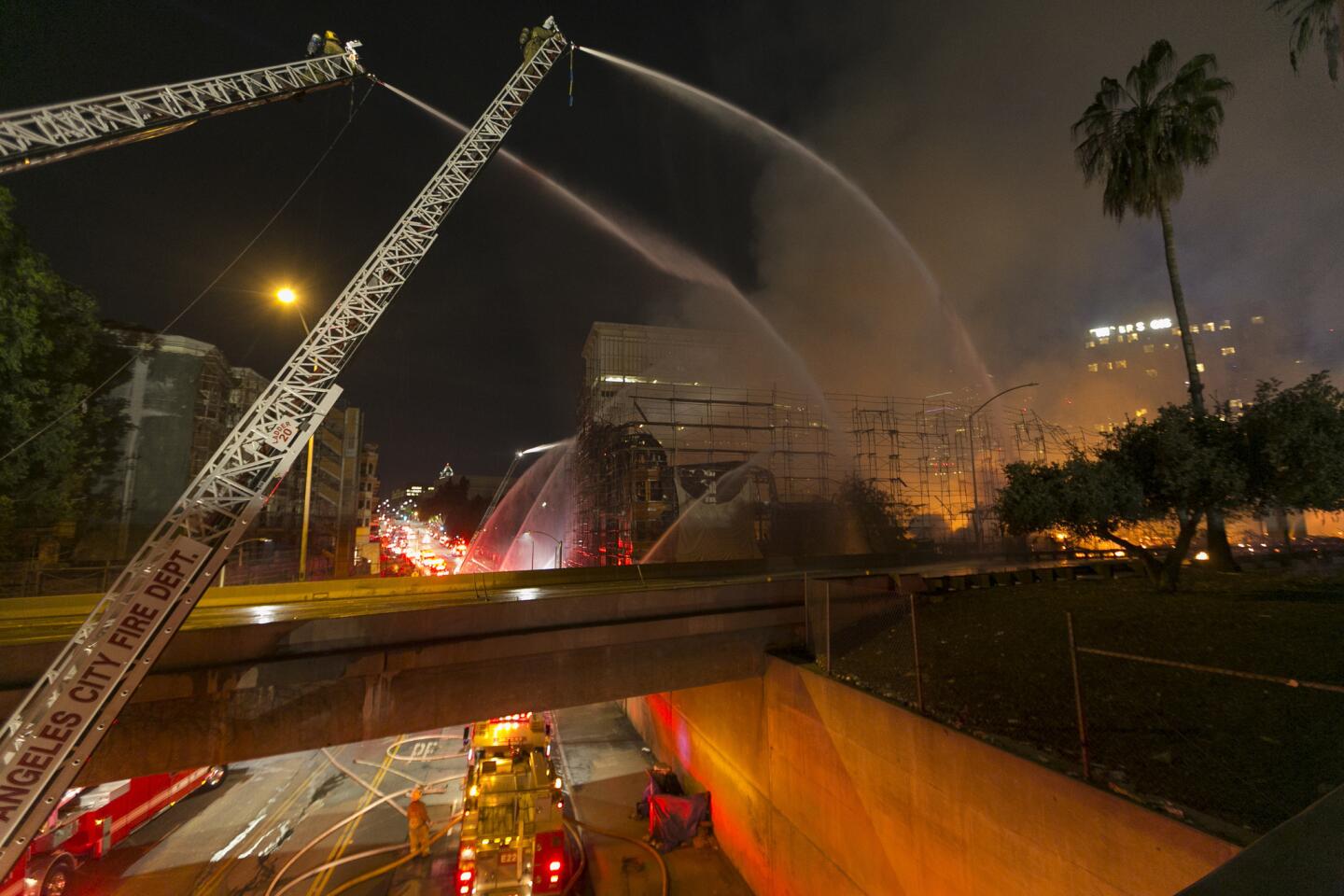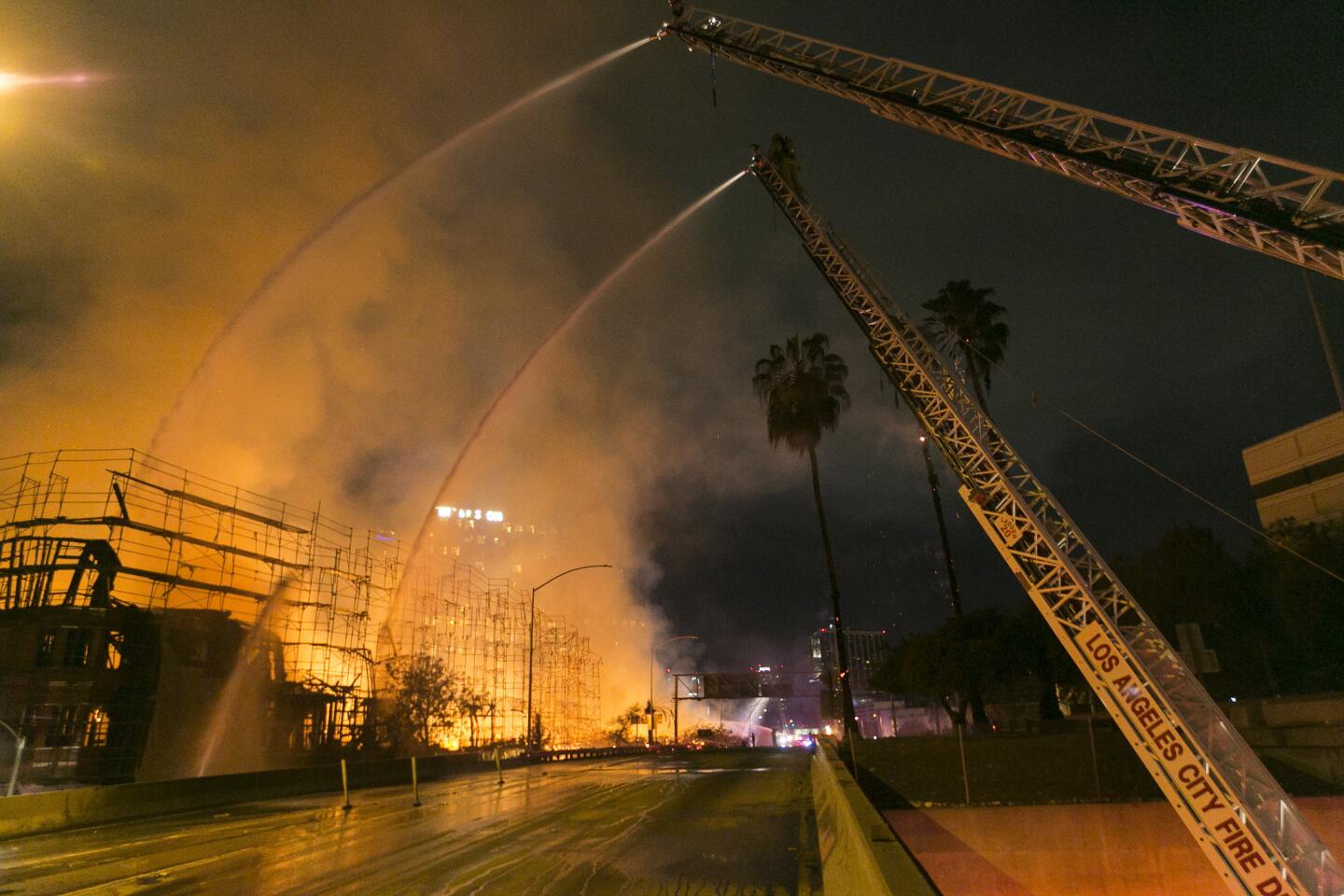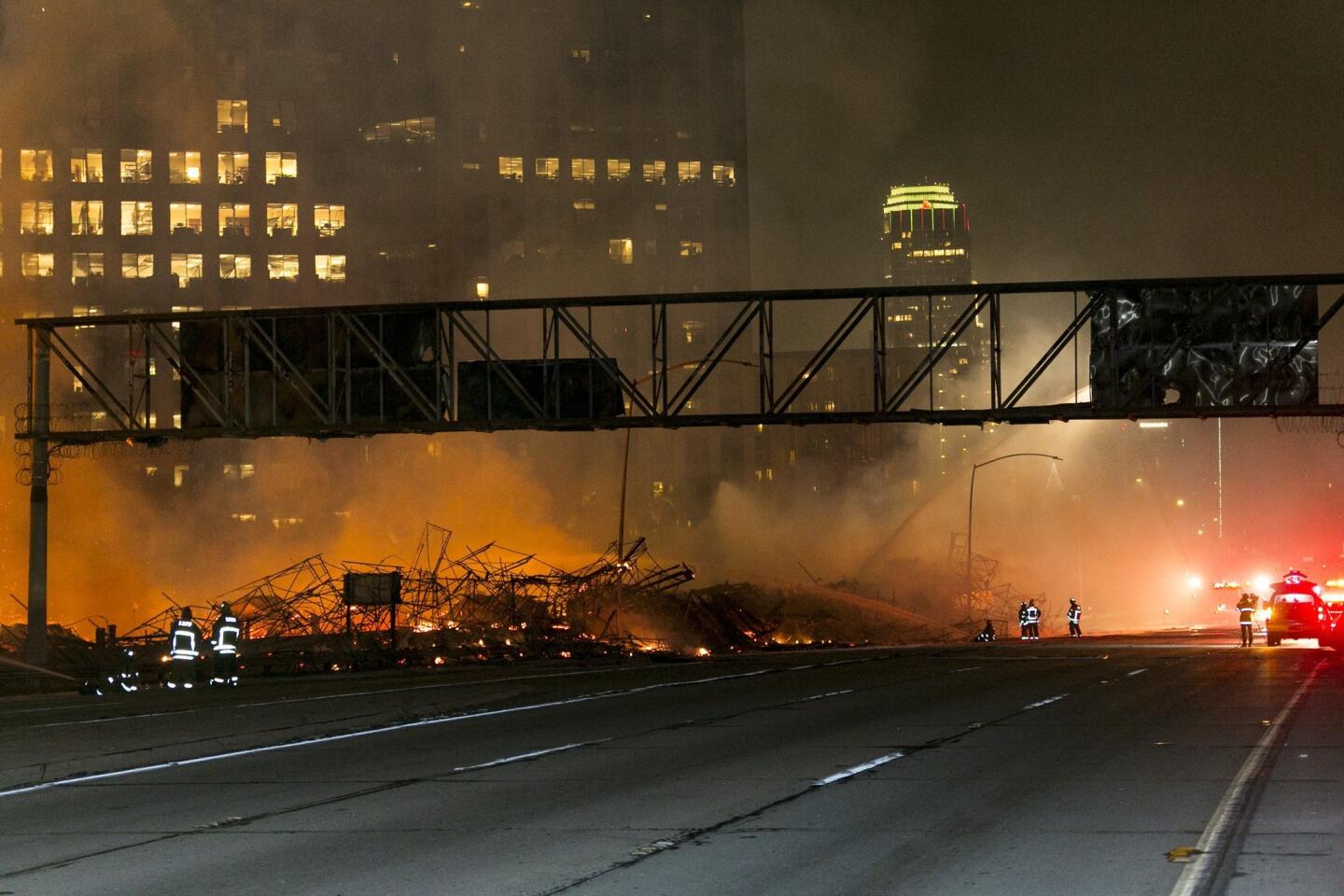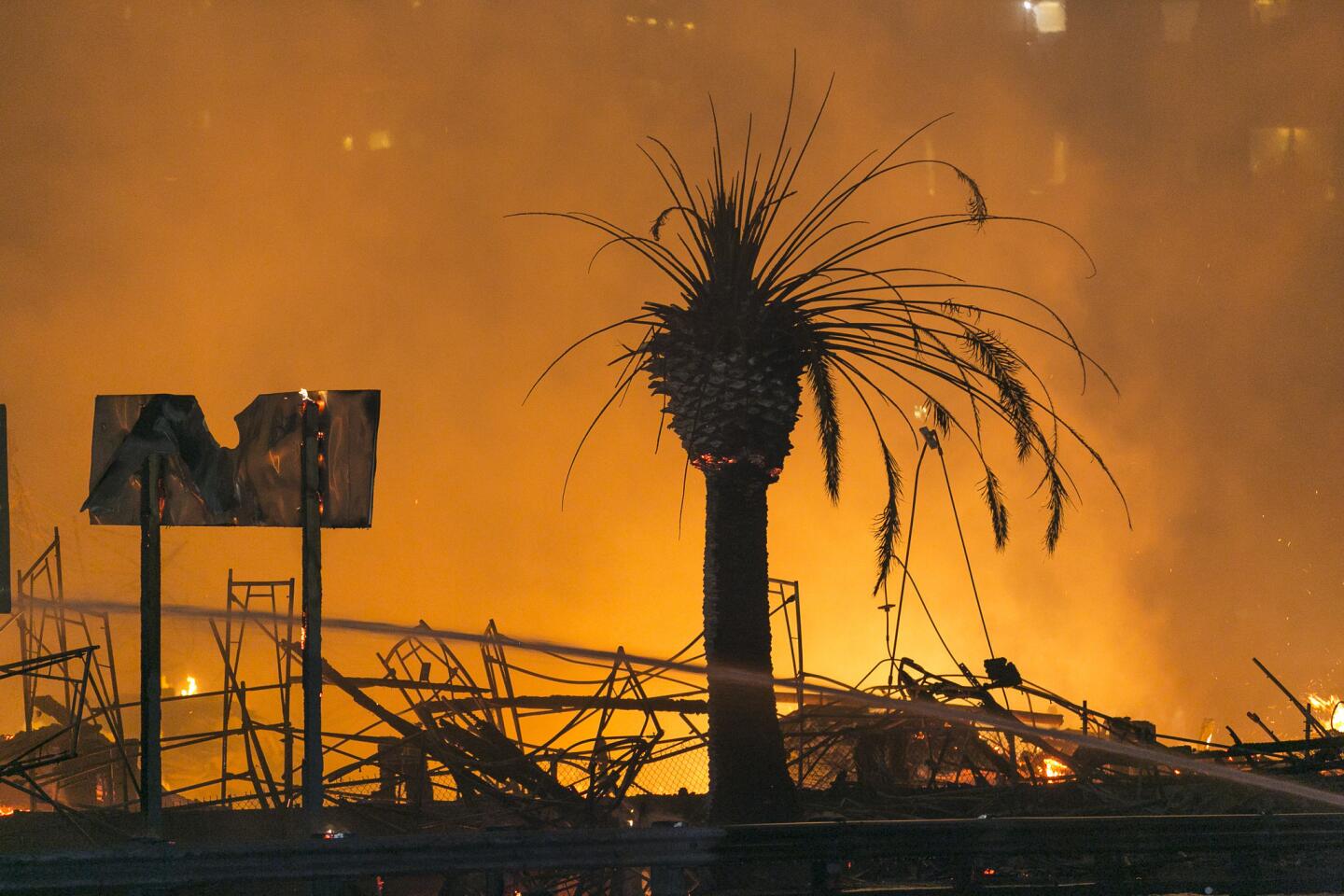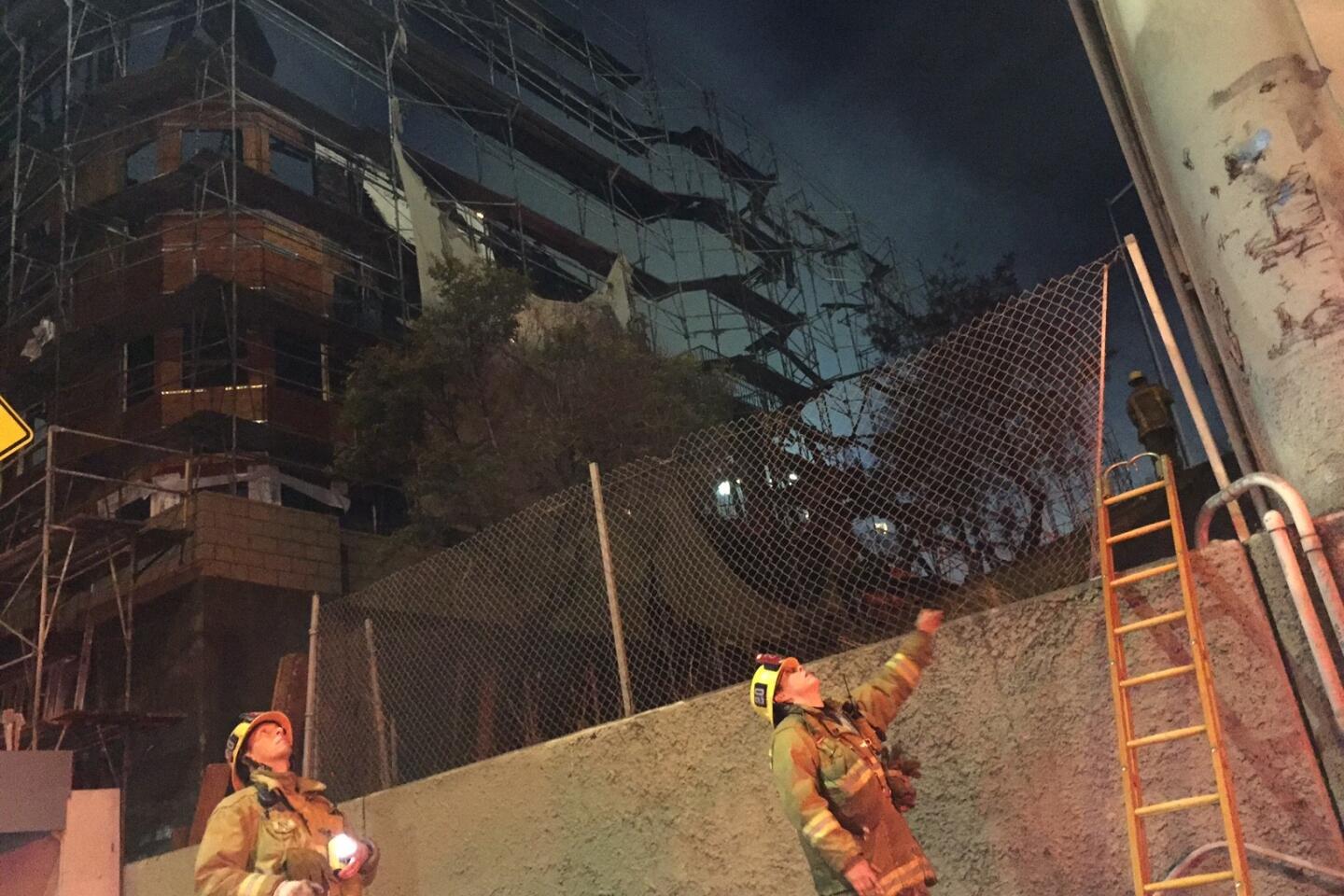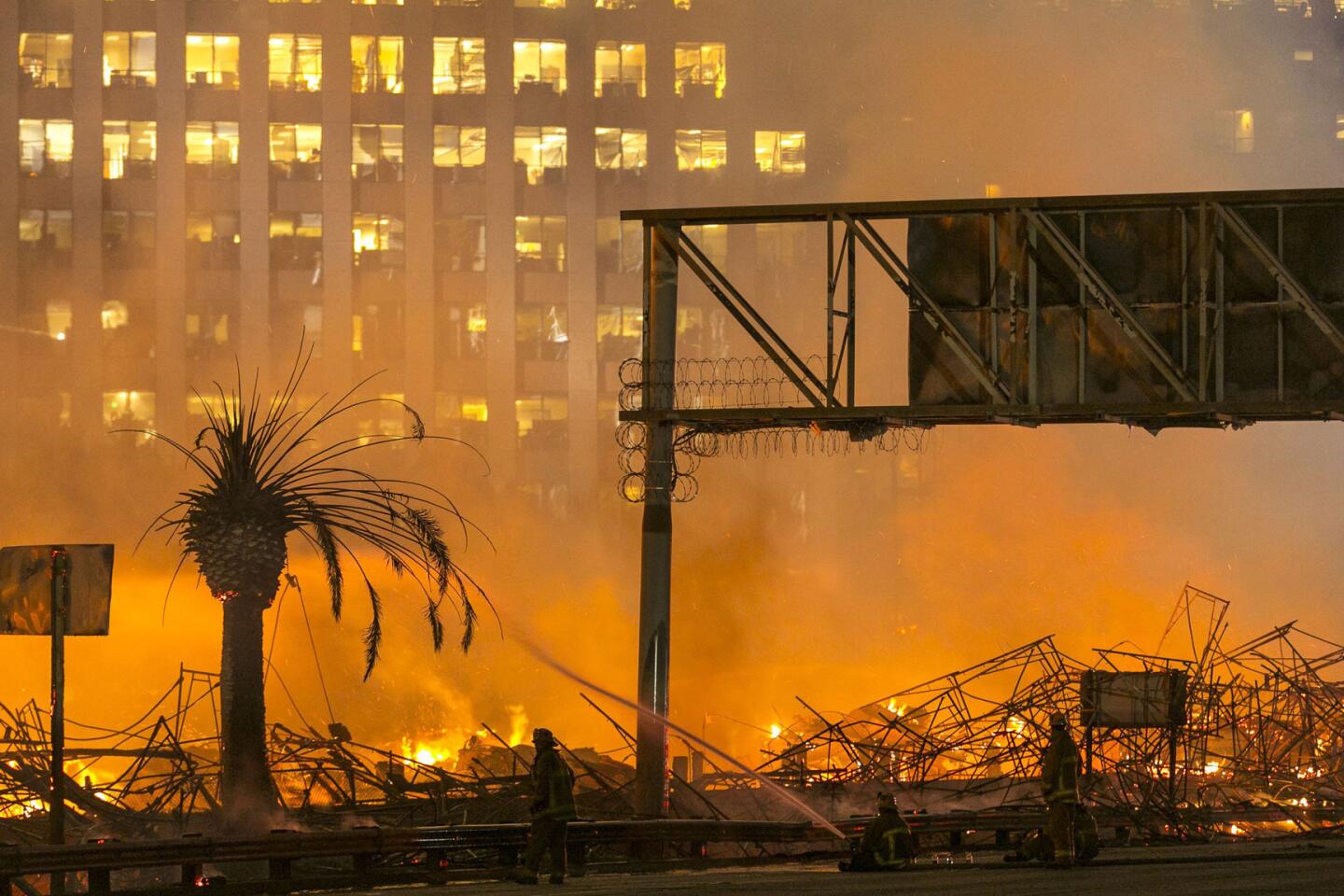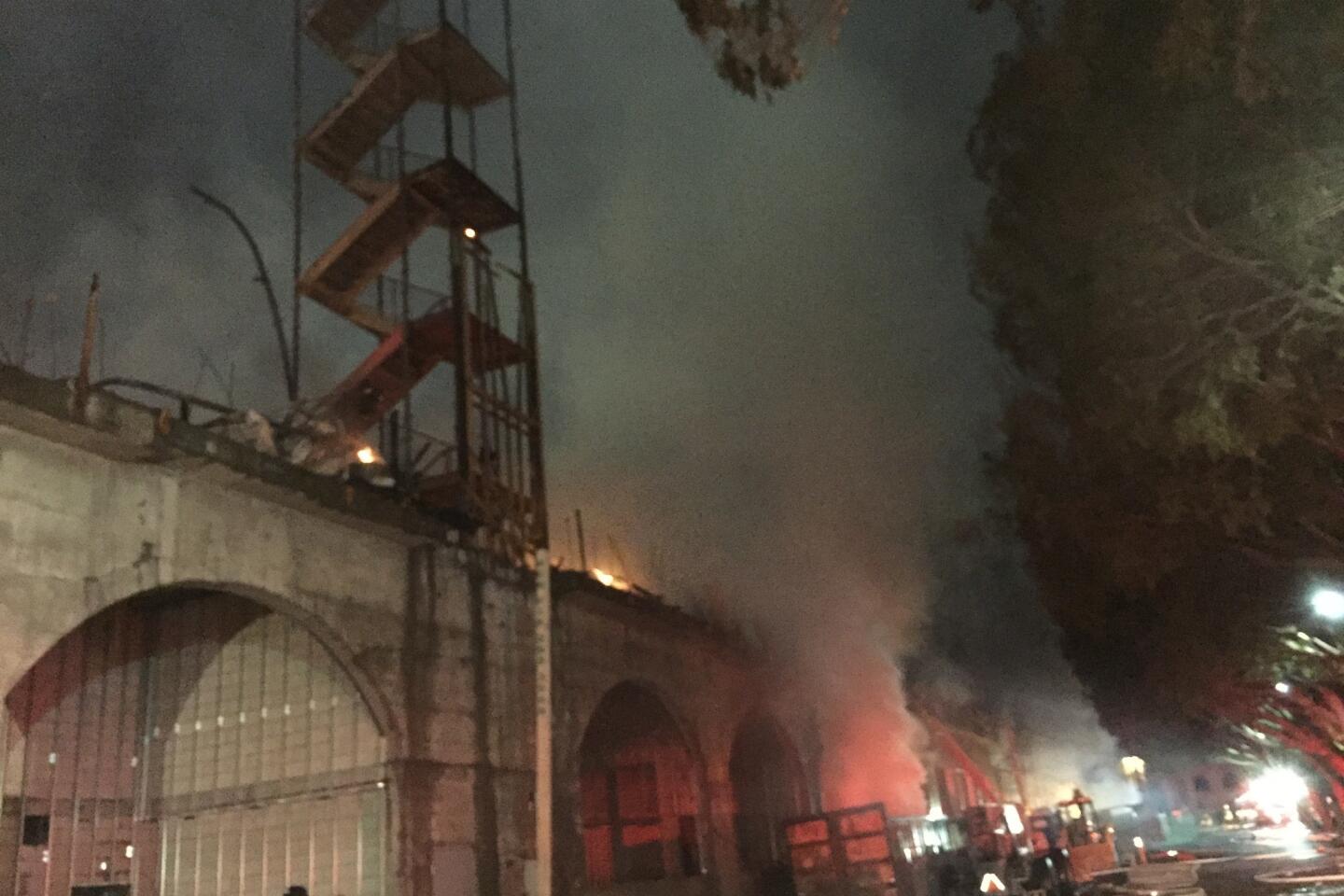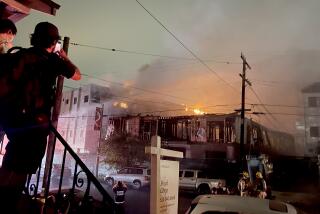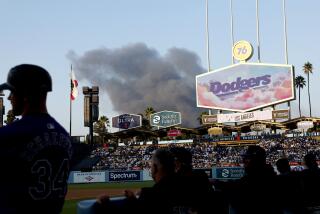‘Tower of fire’ destroys L.A. apartment complex under construction
The fire engulfed a towering residential project, raining ash on much of downtown Los Angeles and lighting the predawn sky a smoky orange.
Computers and cubicles melted in neighboring buildings. Hundreds of thick windows cracked. Palm trees were ignited. Intense heat damaged fiber-optic cables beneath a downtown freeway and melted one of the signs. Homeless people were roused from their sleep blocks away.
Maria Joya, 54, woke up beneath an underpass of the 110 Freeway to feel her bare feet suddenly baking hot.
She said she leaped from her blanket to see “a tower of fire.” She screamed to her neighbors to wake up.
“There were tongues of fire,” she said. “I just started crying.”
Officials say that they are inclined to believe the fire was intentionally set.
It took 250 firefighters an hour and a half to put out the fire that broke out in the Da Vinci apartment complex about 1:20 a.m. Monday. The development, the size of a city block at the juncture of the Harbor and Hollywood freeways, was in the process of being framed, mostly with wood. No one lived there yet and no injuries were reported.
Capt. Jaime Moore said blazes of this magnitude are always treated as criminal fires, but added “it’s very rare for the entire building to be engulfed at once.”
“There may have been some foul play,” he said.
Arson investigators were waiting until it was safe to enter the wreckage, along with dogs trained to sniff out fuels or other accelerants.
On Monday afternoon, federal investigators with Bureau of Alcohol Tobacco, Firearms and Explosives boarded a fire crane to peer down into the smoldering mess. With the several floors of the building collapsed on top of one another, investigators will have to pick through layers of debris to determine what caused the fire, said Carlos Canino, the top ATF agent in Los Angeles.
“You’ve literally got to get down to the ground level, to the cement,” he said.
Officials said they also planned to examine the building records and financial documents.
The construction site inferno made for an unforgettable spectacle.
“It looked like a bomb had just exploded,” Los Angeles Fire Capt. Rick Godinez said.
The northbound lanes of the 110 Freeway were closed until 10 a.m. — clogging traffic far and wide — as were 1st and Temple streets, shutting down the city center for much of the morning.
The first firefighters arrived to find flames roaring along 700 feet of Figueroa Street, lapping seven stories into the air.
The building had 1.3 million square feet of floor space, with two concrete-walled floors at the bottom and five wood-framed ones above.
Windows began to burst in neighboring buildings and new fires ignited inside. The Department of Water and Power headquarters lost 160 windows, each 10 feet tall.
Capt. Steve Tufts oversaw a fire engine that responded to the blaze from an LAFD station on 51st Street in South Los Angeles.
“When you got that bare wood. It burns. It burns good,” he said.
Tufts’ unit helped combat radiant heat in a high-rise next door, which was saved by fire sprinklers.
Cristobal Gutierrez, 18, was driving home to Bell after a night of showing his brother Jose, 9, around Hollywood.
Nearing downtown about 1:40 a.m. Gutierrez saw smoke pouring out of what looked like a factory, then flames erupted. He hollered, jolting his brother awake.
“He was like ‘cool, look at that big fire!’ ” he said. “My mind-set was . . .’I need to get out of here as quickly as possible.’ You don’t know how it can escalate.”
Still, Gutierrez pulled to the shoulder and paused for less than a minute so he could shoot some photos and video on his phone.
Kin Isamov, 28, of Silver Lake was headed downtown on the 110 Freeway to pick up his girlfriend at an art studio. When he and his friend passed close to the fire, he filmed as his friend screamed expletives.
“You could feel the fire. You drive through it, and you kind of imagine what Armageddon would feel like,” Isamov said. “You feel like any second the fire is going to get in the car, burn you.”
Daniel Reese, 38, was sleeping in his apartment at Canvas L.A. a four-story blue and gray complex across the 110 Freeway from the Da Vinci, when sirens awoke him.
Police were ordering residents to evacuate. He walked out to the balcony of his apartment and turned to see giant flames above the freeway.
“I grabbed my wallet and my dog,” he said, standing outside with Marley, a fawn British bulldog.
Reese said embers were raining down and the heat could be felt as far as Beaudry Avenue, 200 yards away.
By dawn, officials and property owners were assessing the damages.
There was $10 million in estimated losses in the razed structure, Moore said. And at least four nearby buildings were also damaged.
The Lewis Brisbois Bisgaard & Smith building at 221 N. Figueroa St., where the computers and cubicles melted, had significant damage on its 15 floors, with 300 windows blown out.
Three floors were also damaged in the Los Angeles County Department of Health Services building at 313 N. Figueroa.
Moore said that it “speaks to how intense this fire was” that flames jumped to the other buildings.
DWP staff have identified at least 160 windows, mostly on the west side of the John Ferraro Building, that were cracked. Employees with work locations near the cracked windows were moved away as the staff began boarding and securing each location.
Los Angeles Department of Building and Safety spokesman Luke Zamperini said windows blew out in the north tower of its department headquarters, and the heat and smoke triggered sprinklers that soaked carpets and desks.
Building inspectors were told to report to other offices Monday. “It has not affected the inspection operation,” Zamperini said.
Zamperini said he knew of no concerns with the construction of the building, calling the burned structure “the most inspected building in the history of mankind, because it’s right outside our inspectors’ windows.”
“We’ve all been watching the progress of the building and these guys working their tails off. Now it looks like they’re going to be out of work for a little while,” he said.
Caltrans officials said an exit sign over the 110 Freeway melted and would have to be replaced, forcing another freeway closure later this week. The department’s fiber-optic lines below the pavement that monitor traffic flow and speeds may also have to be replaced, Caltrans spokesman Patrick Chandler said.
He said the agency estimated the fire caused $1.5-million damage to the freeway.
A series of dense, upscale apartment complexes have been built over the last decade around the interchange of the 110 and 101 freeways in downtown Los Angeles, including the Da Vinci.
Developer Geoffrey Palmer’s company is known for the Orsini, the Medici and other faux-Italian apartment buildings that have risen along the four-level interchange. The complexes have been part of the revitalization of downtown, though critics have complained about the design and size of the buildings.
The building was in the news earlier this year, when the developer sought a pedestrian bridge that would link the Da Vinci to other complexes in the area and offer residents a route to downtown attractions.
The developer told the city that transients living under the 110 Freeway would pose a safety threat to future renters. The bridge proposal faced criticism from some in downtown, but the City Council approved it in May.
Joya, who was awakened by the heat on her feet, said she figured she would have to move from her spot below the 110 Freeway when the building was completed.
She pointed to the blackened skeleton of the building, looming like an abandoned, half-collapsed roller coaster.
“I feel bad for the owner,” she said. “Imagine how much money he spent.”
Times staff writers Emily Alpert Reyes, Nicole Charky, Victoria Kim, Samantha Masunaga, Kate Mather, Brittny Mejia, Lauren Raab, Veronica Rocha, Joseph Serna, Ruben Vives, Ben Welsh and Richard Winton contributed to this report.
More to Read
Sign up for Essential California
The most important California stories and recommendations in your inbox every morning.
You may occasionally receive promotional content from the Los Angeles Times.
